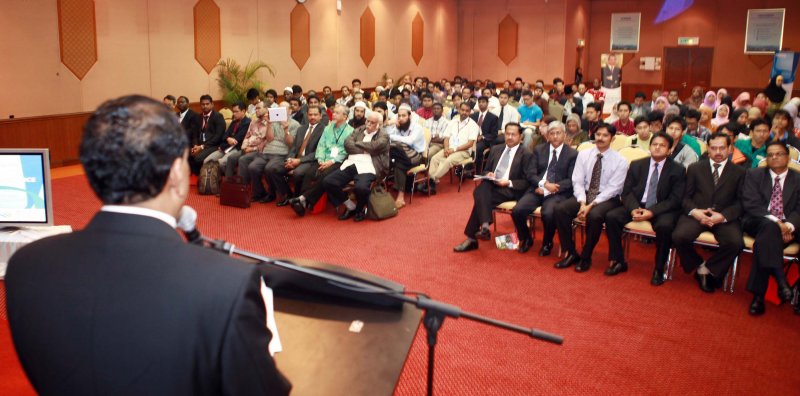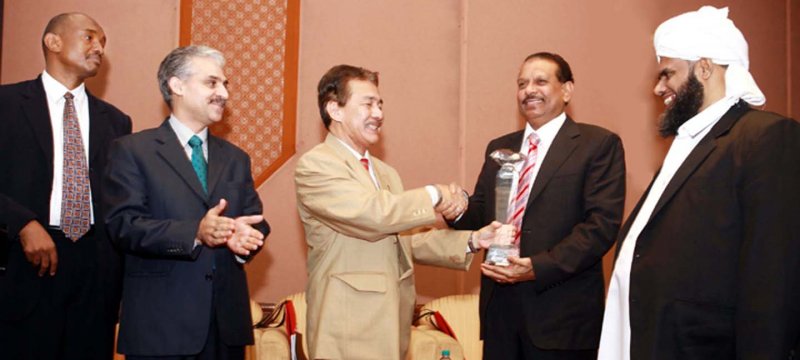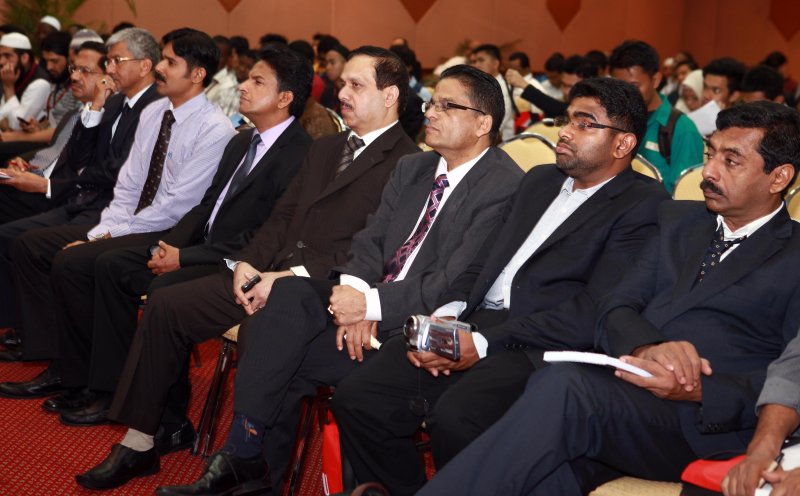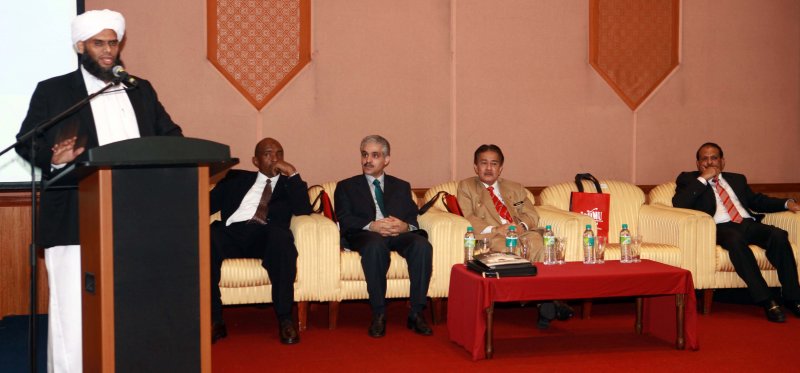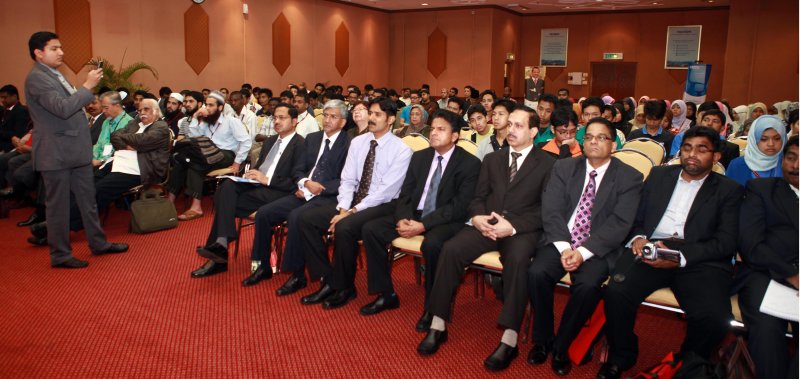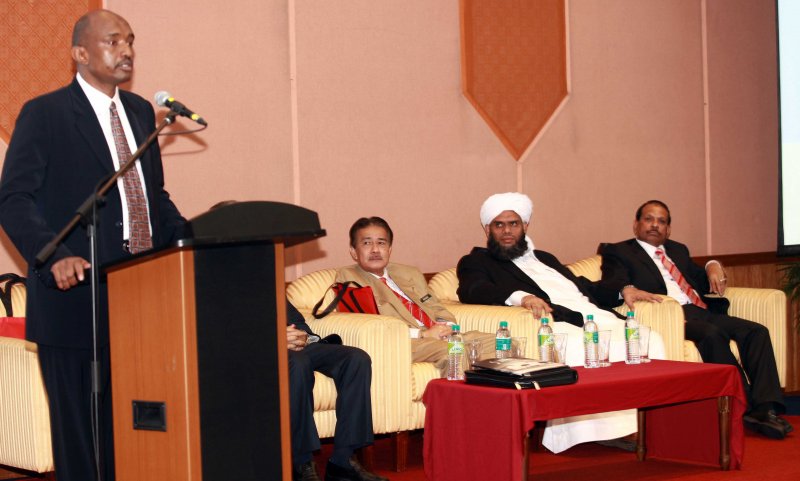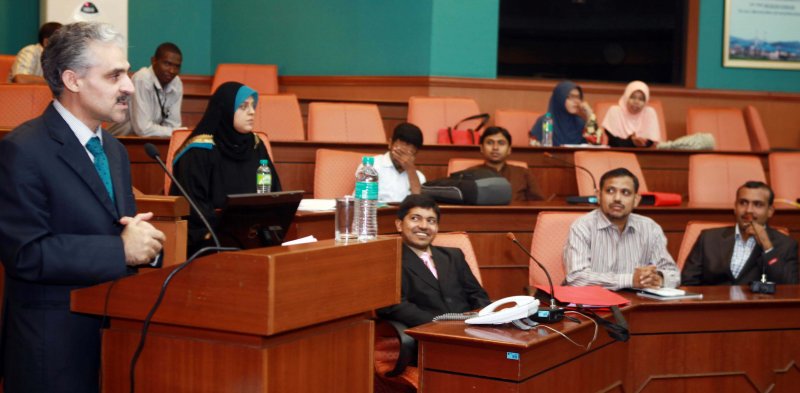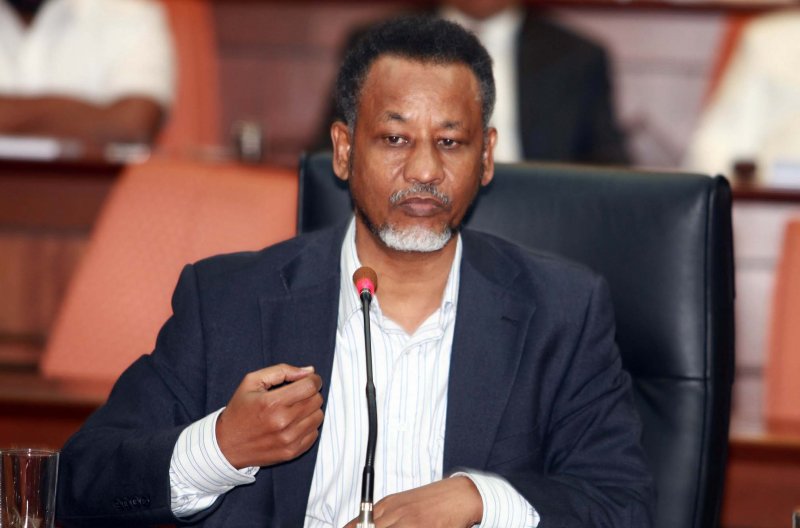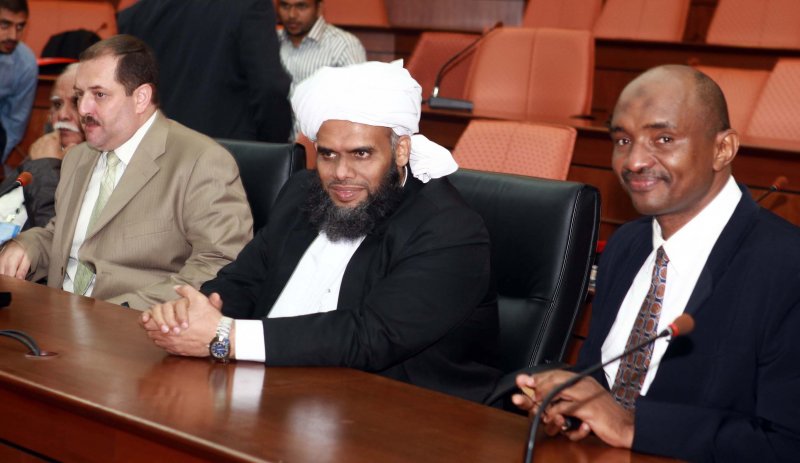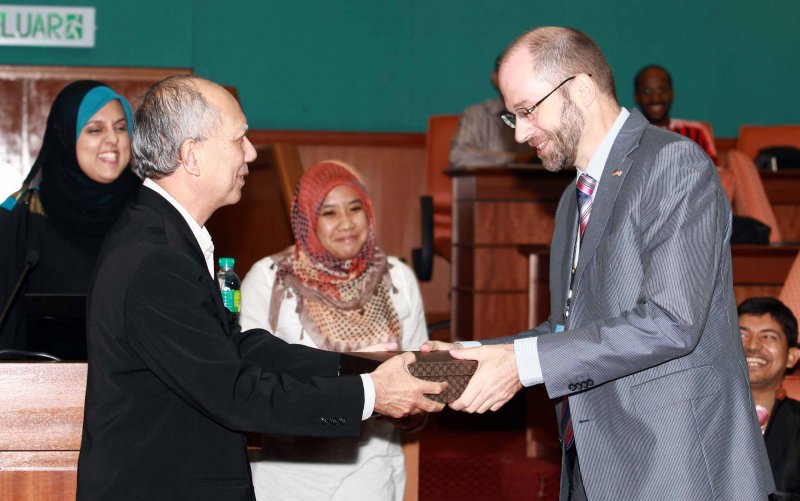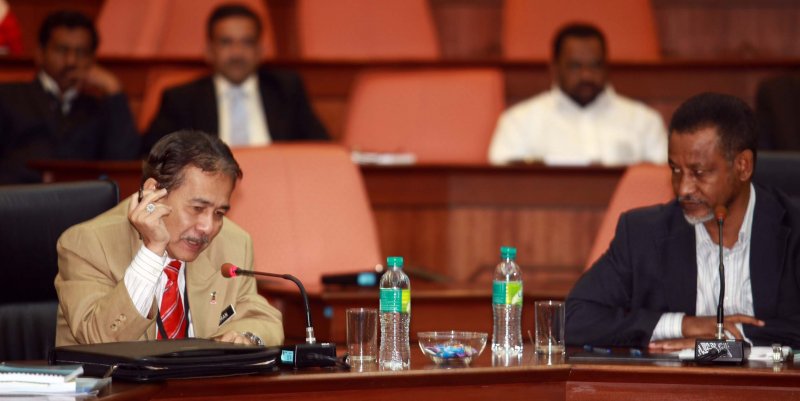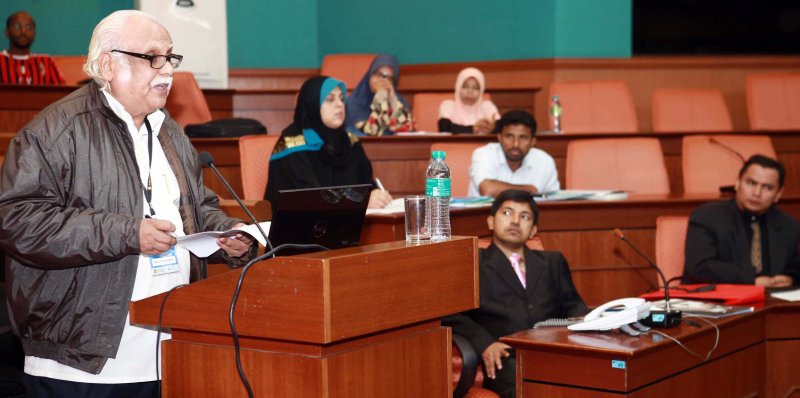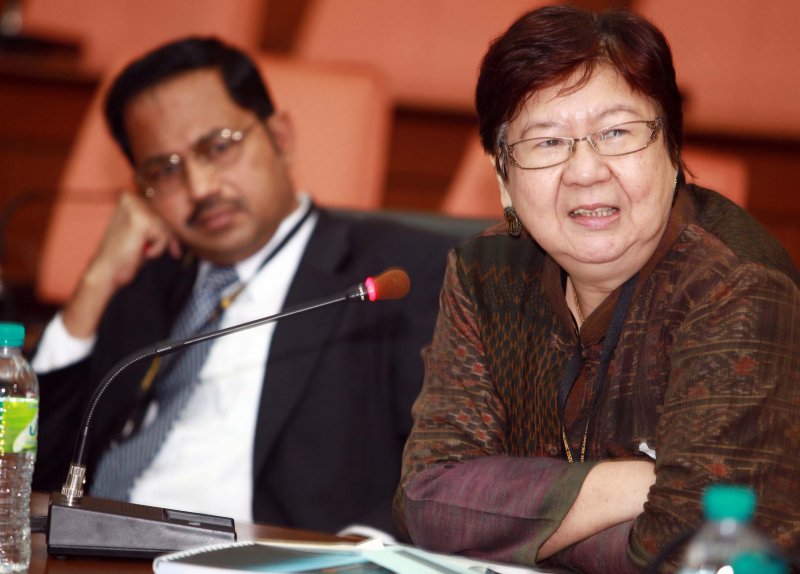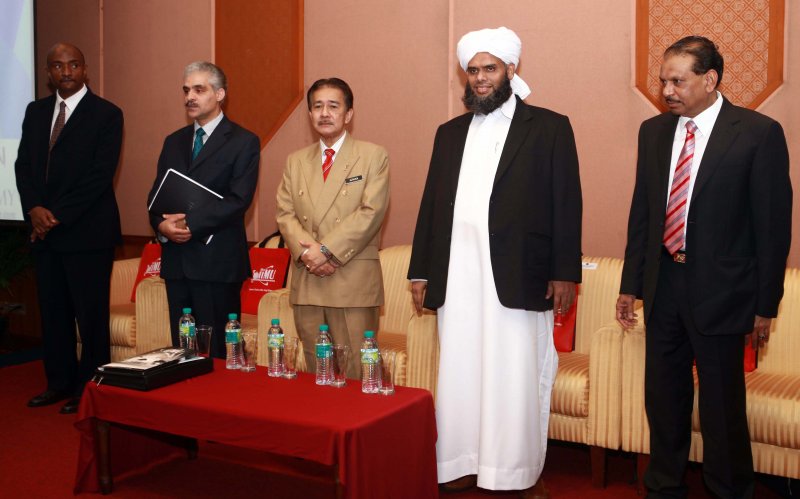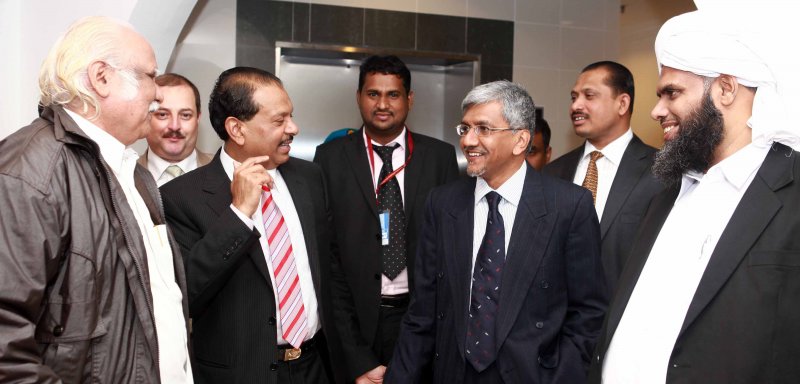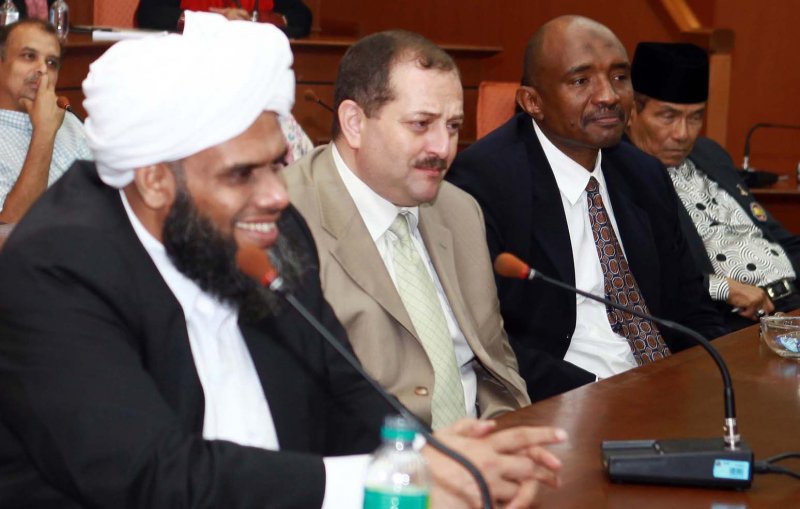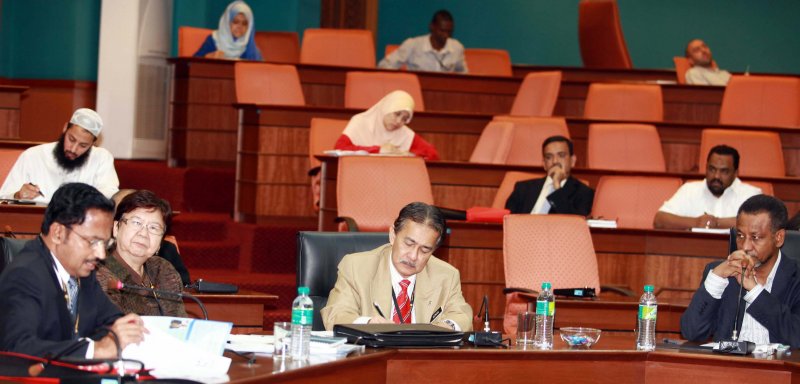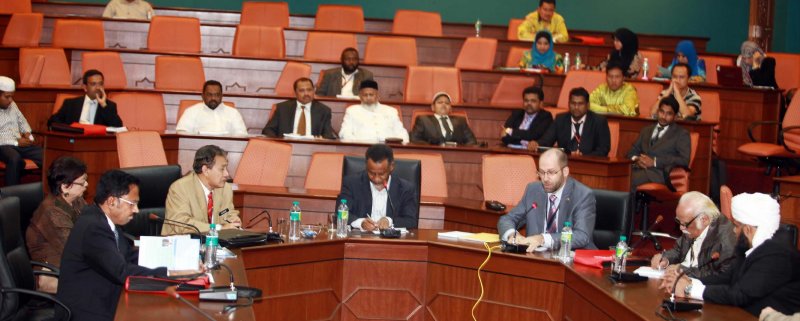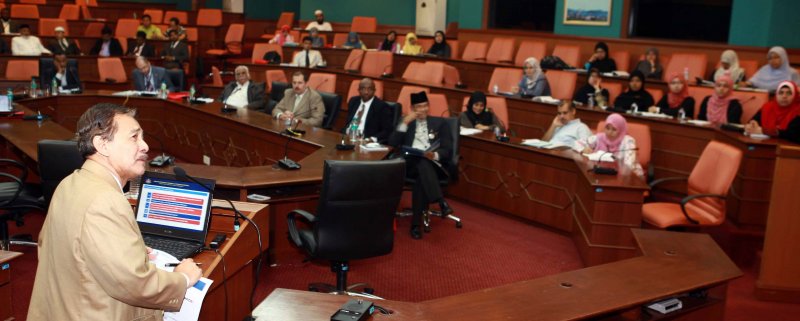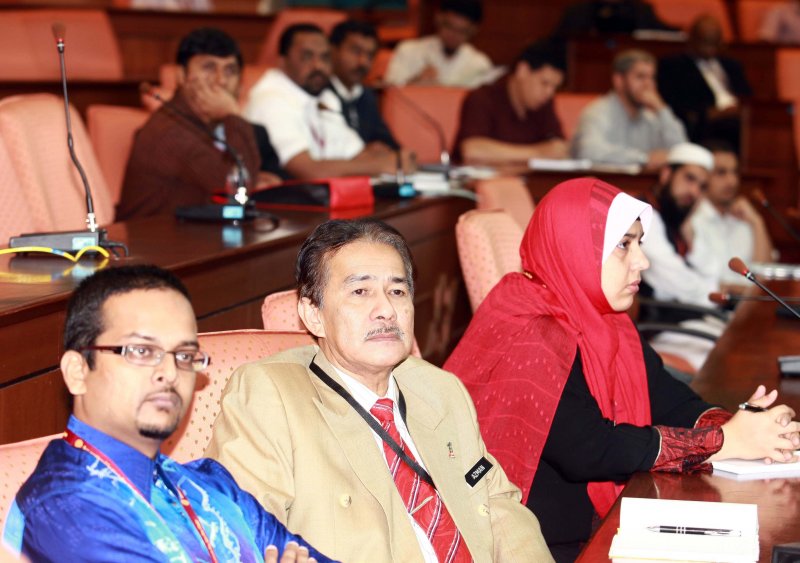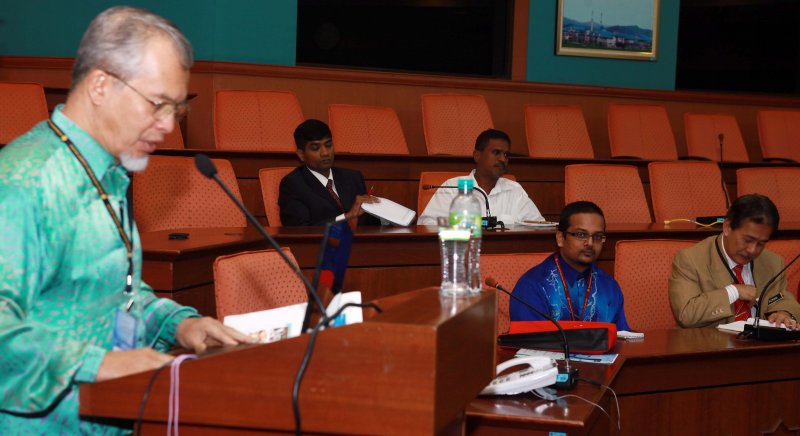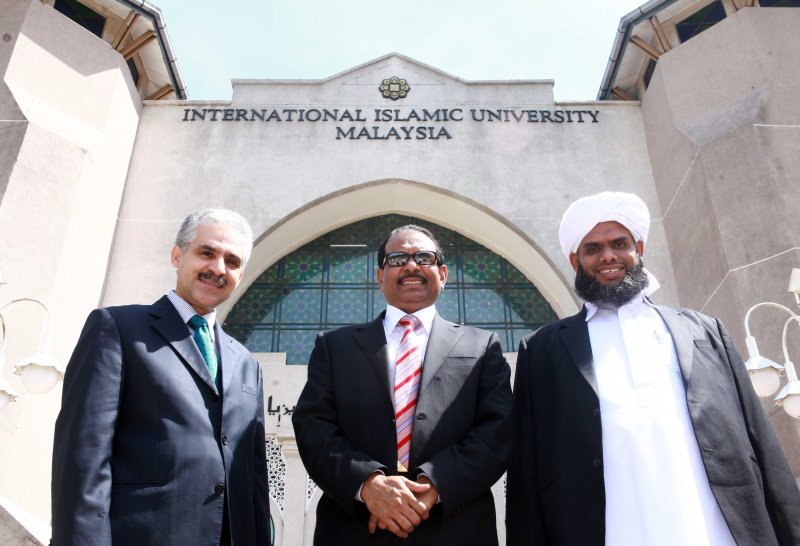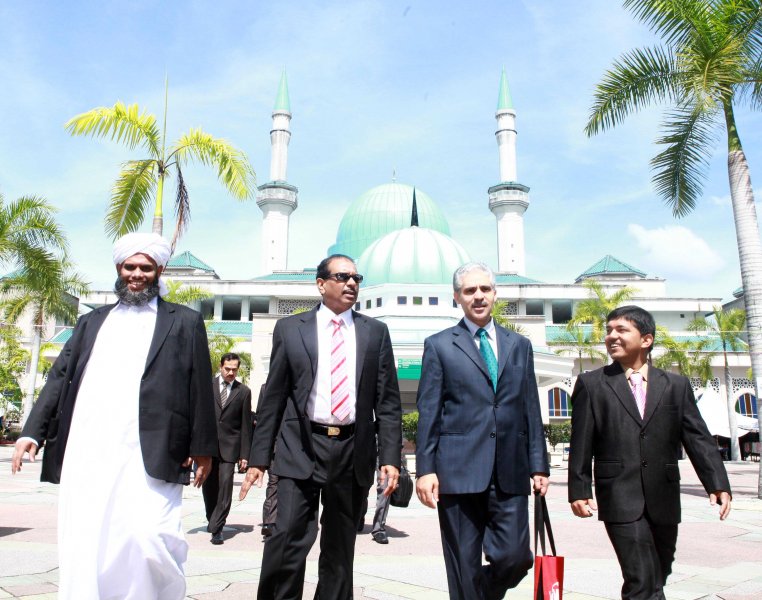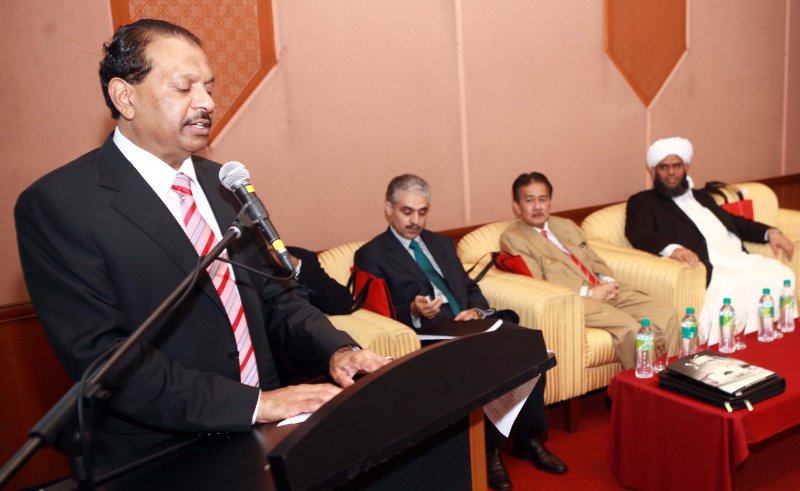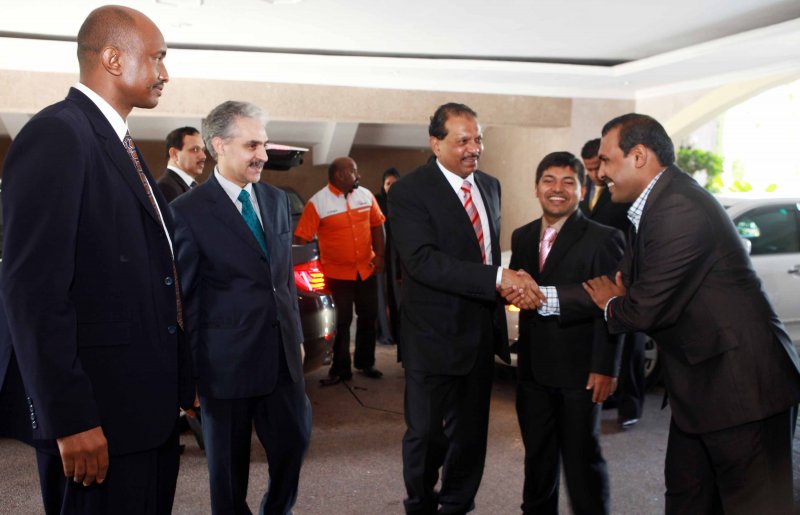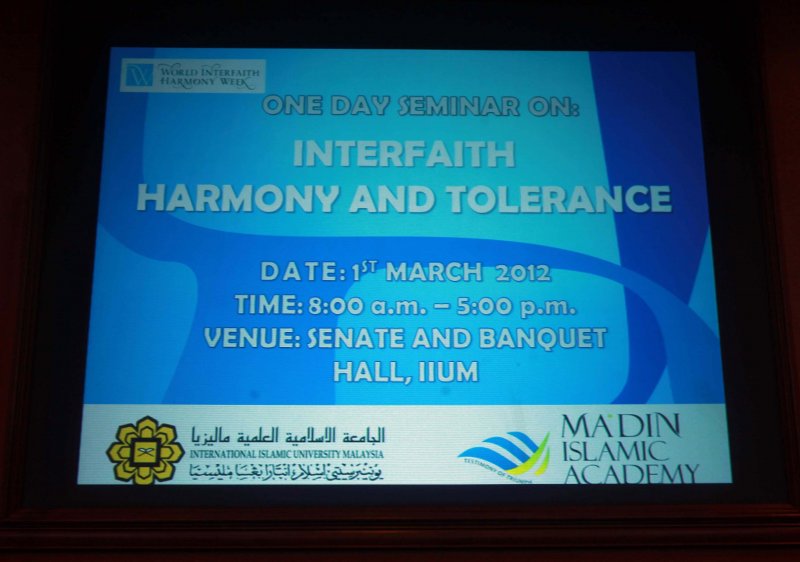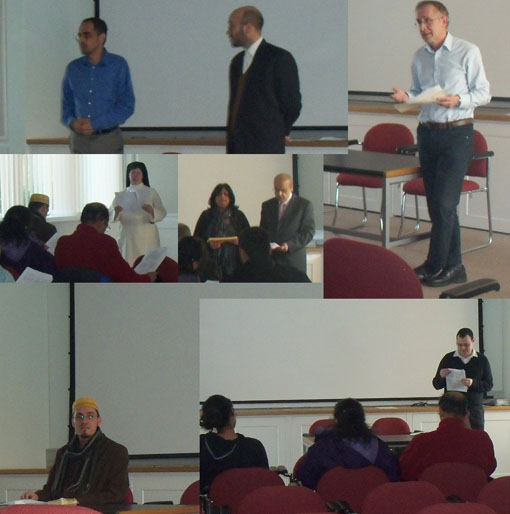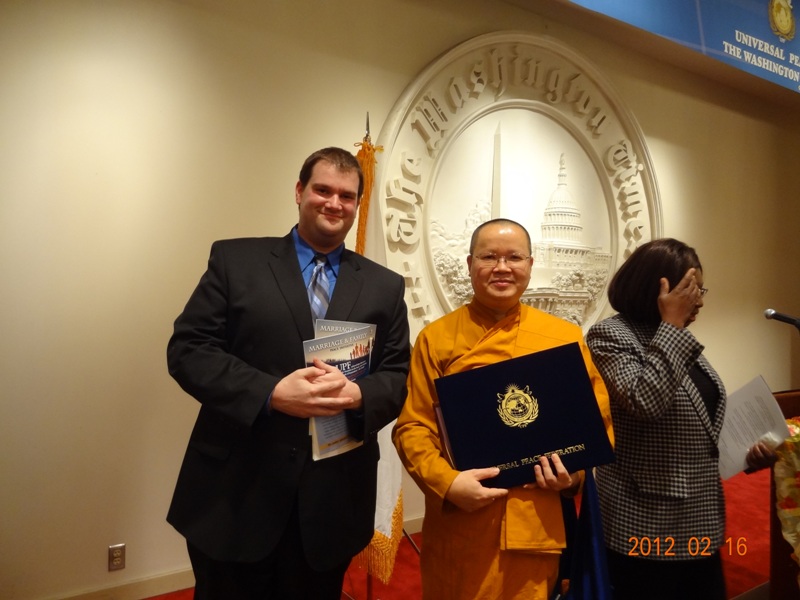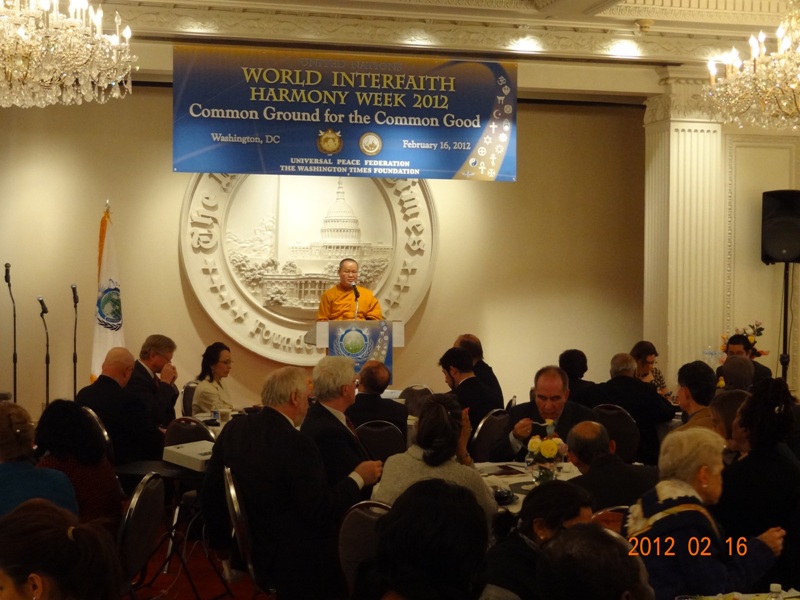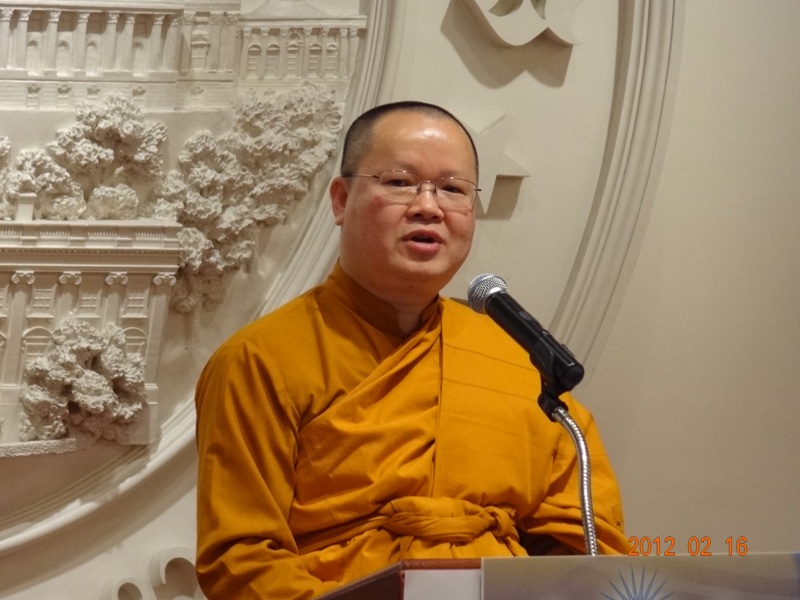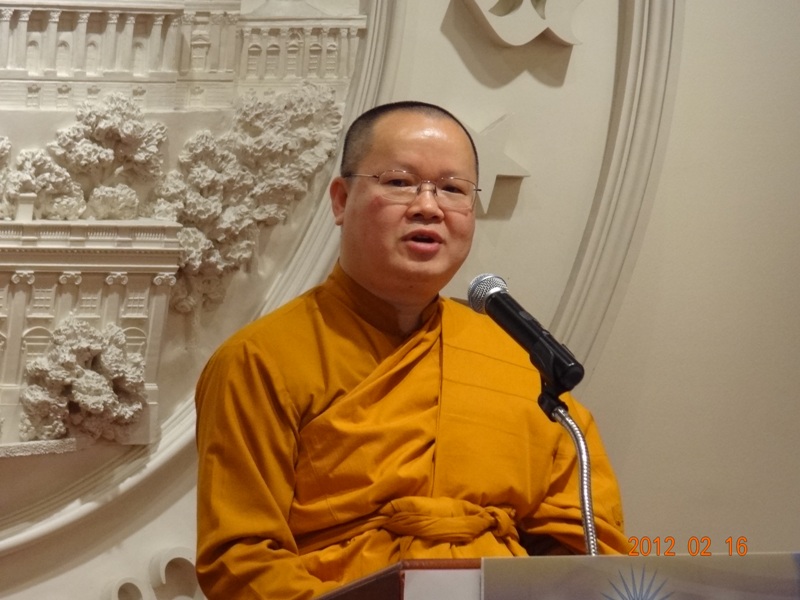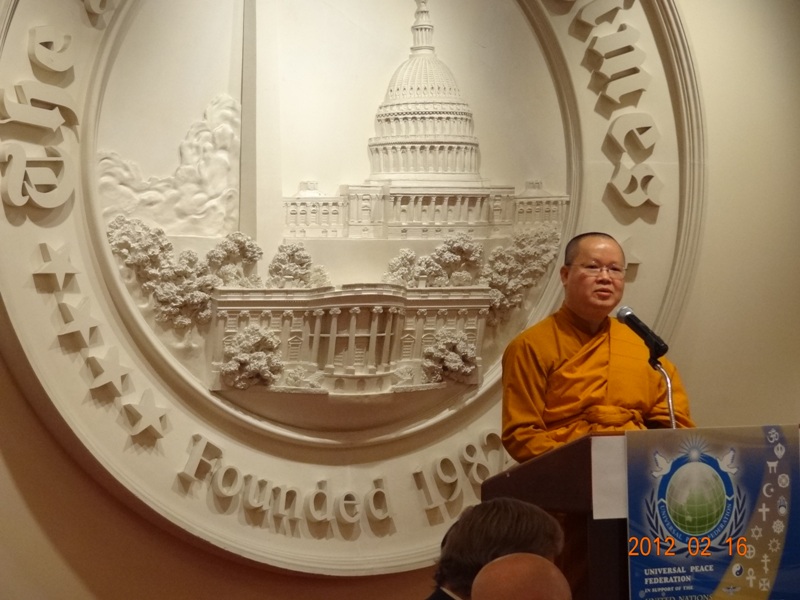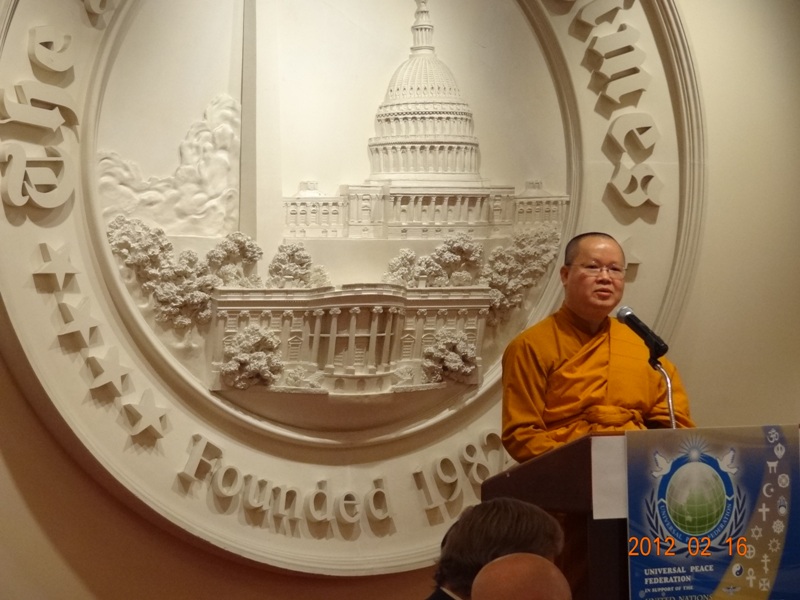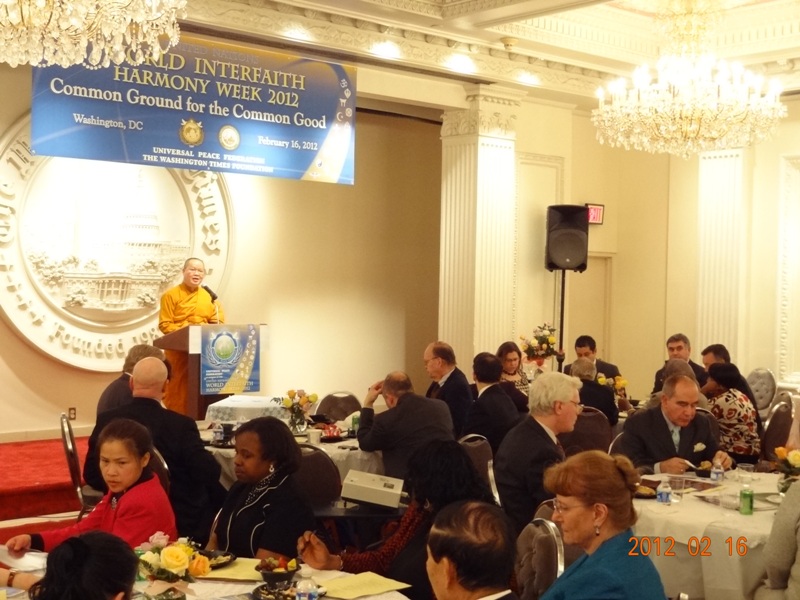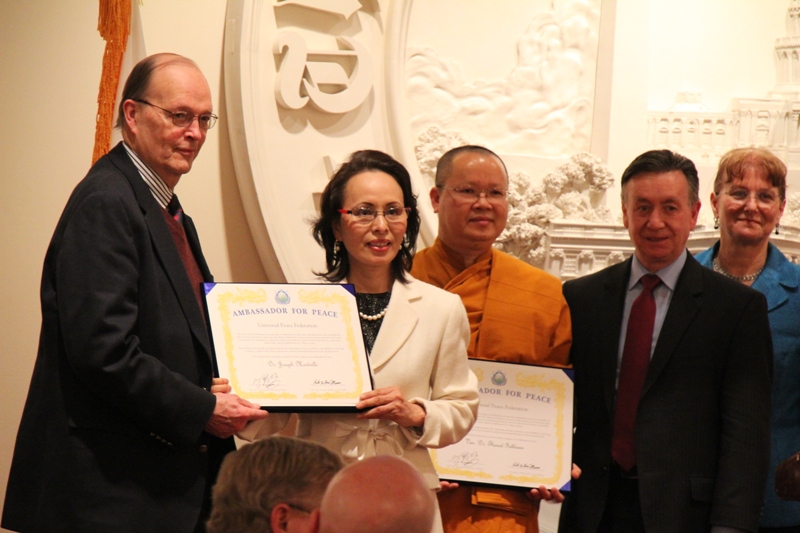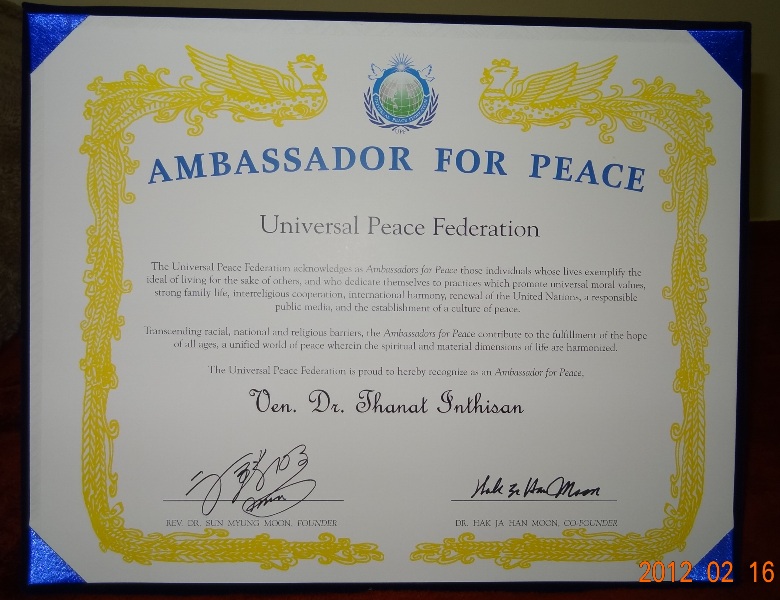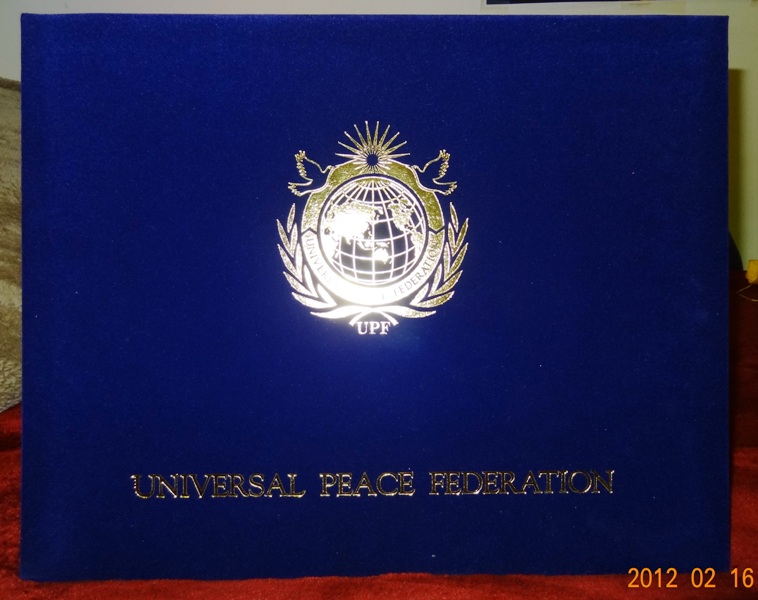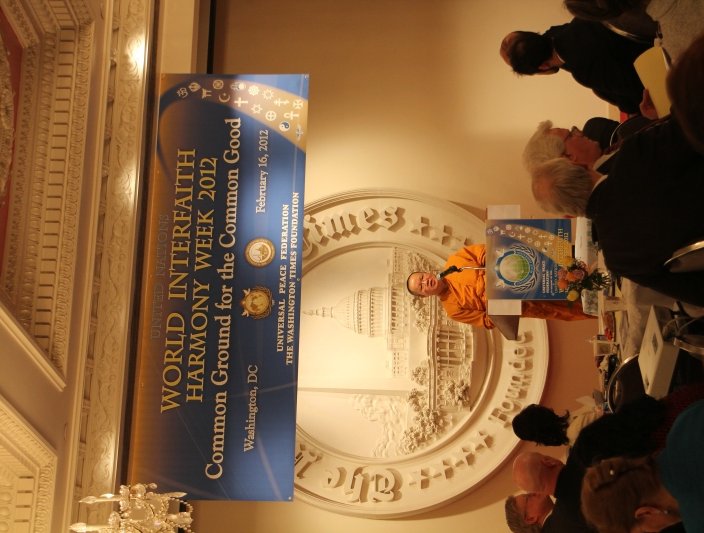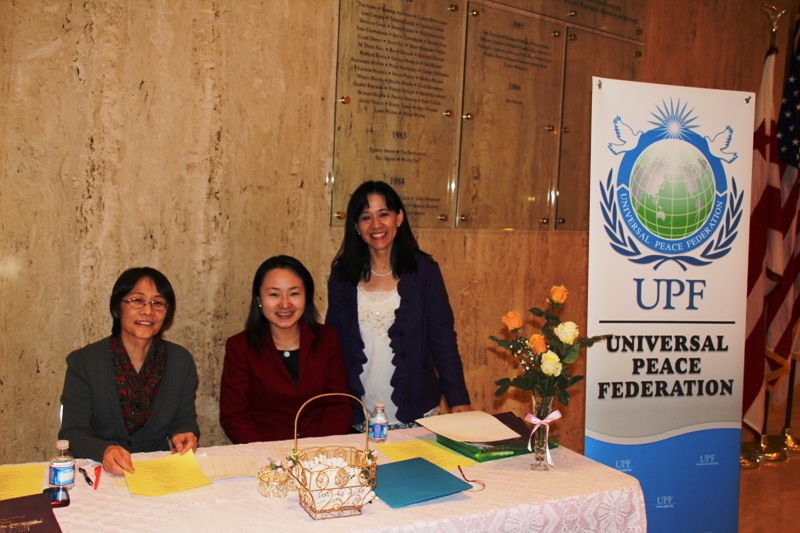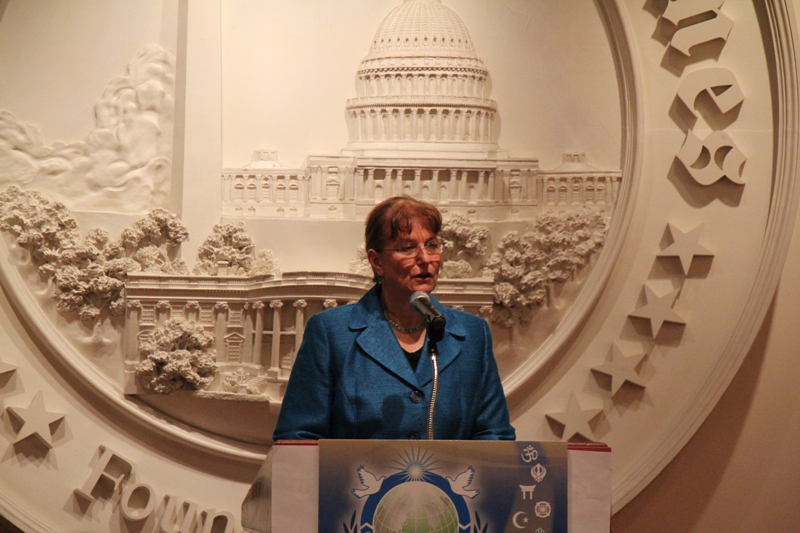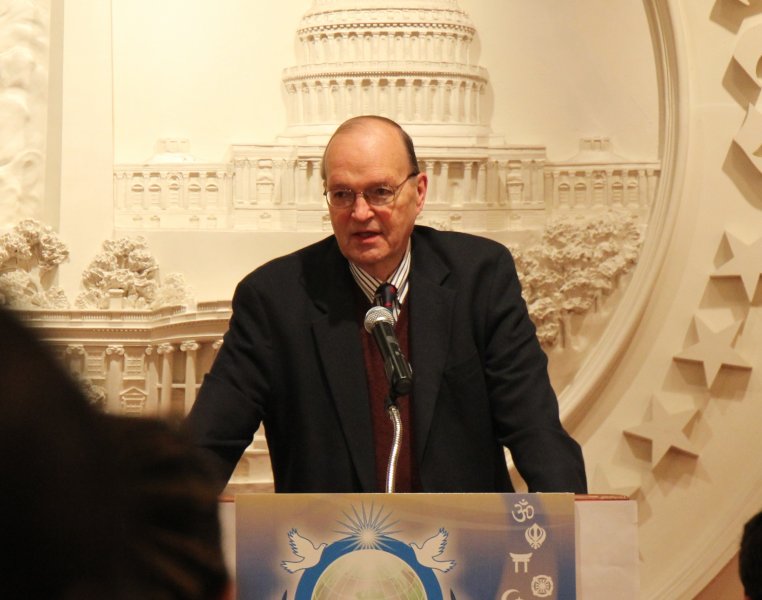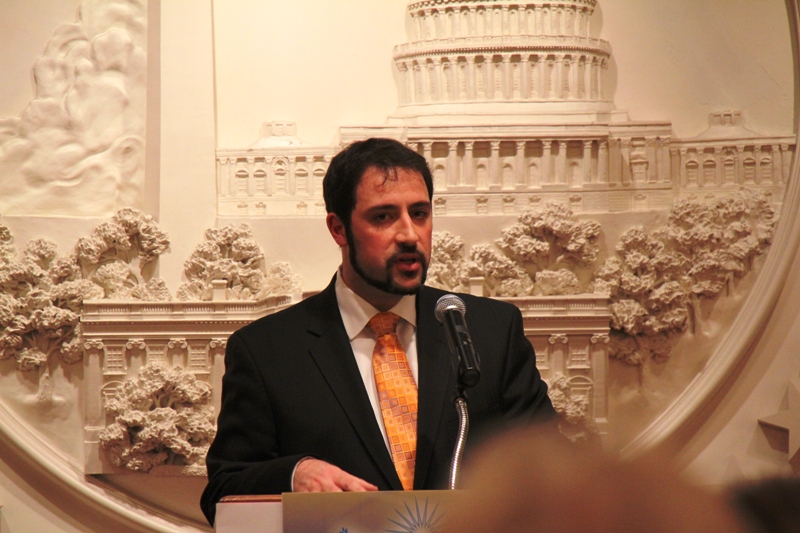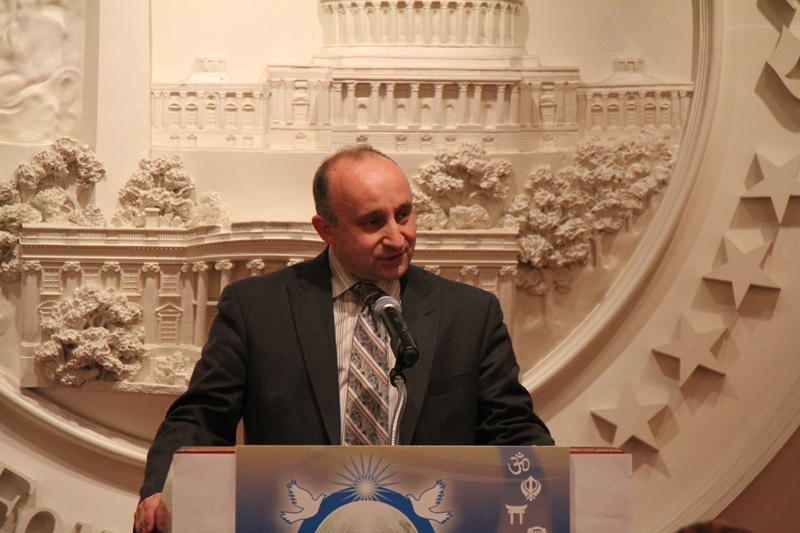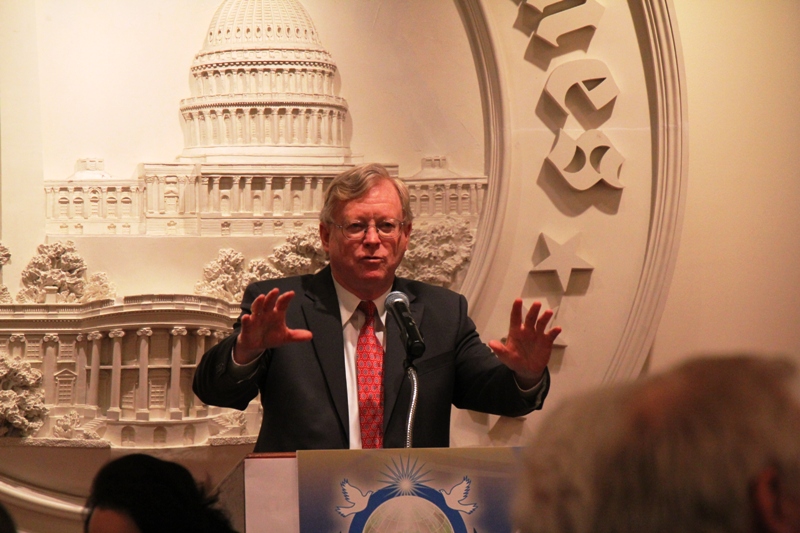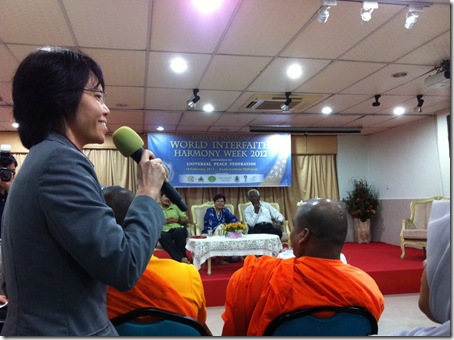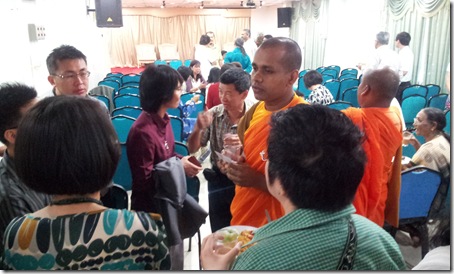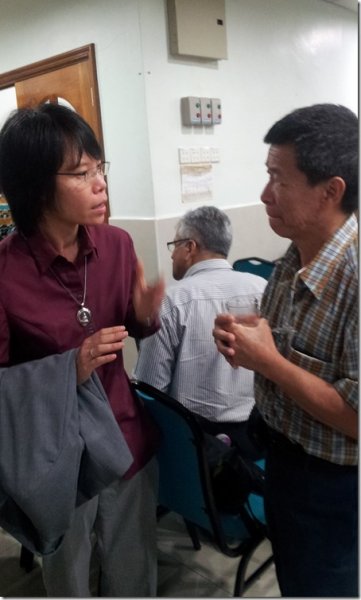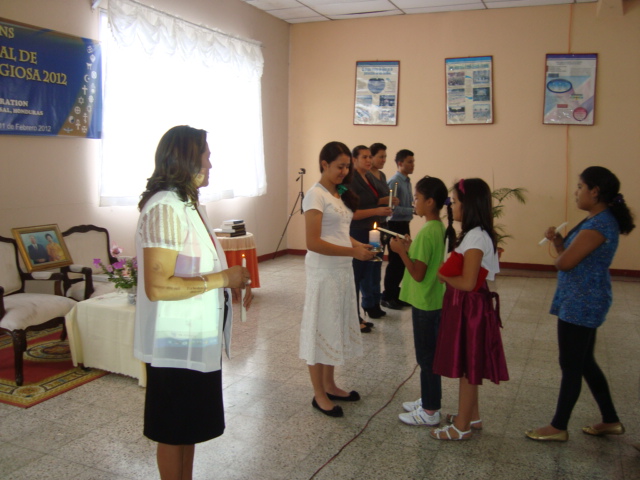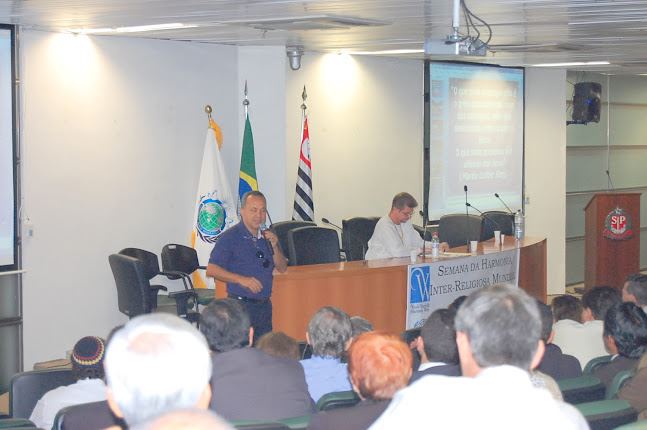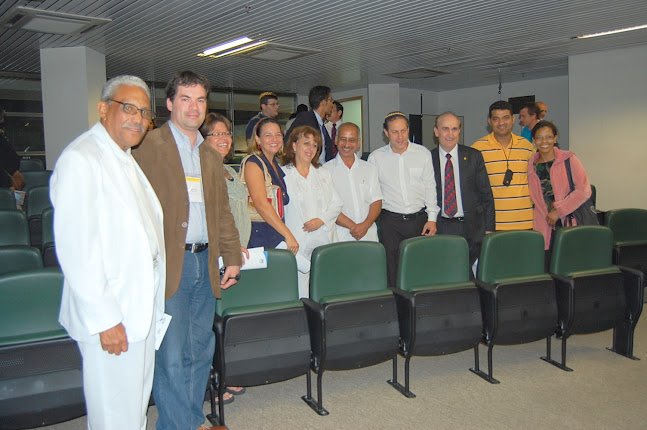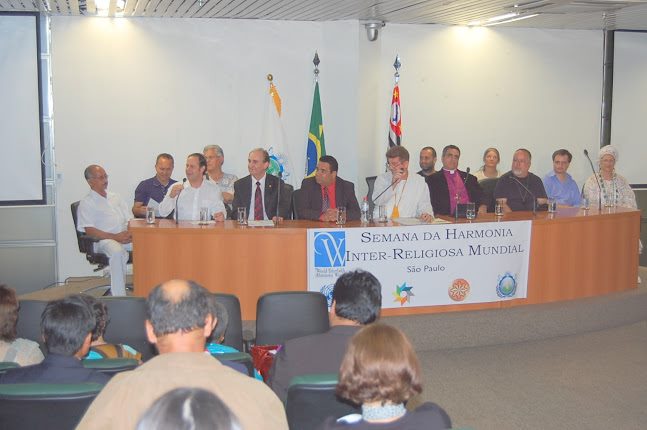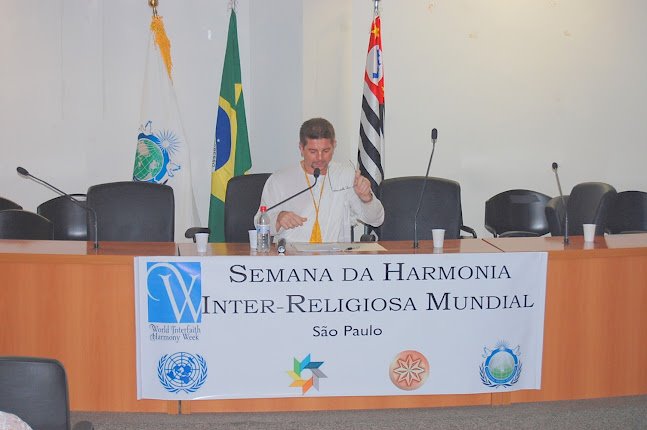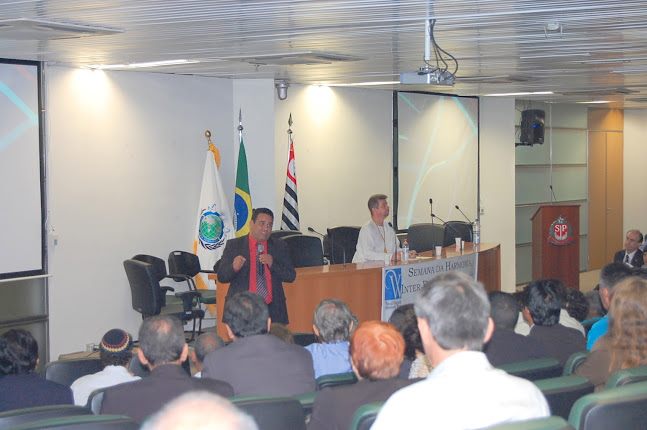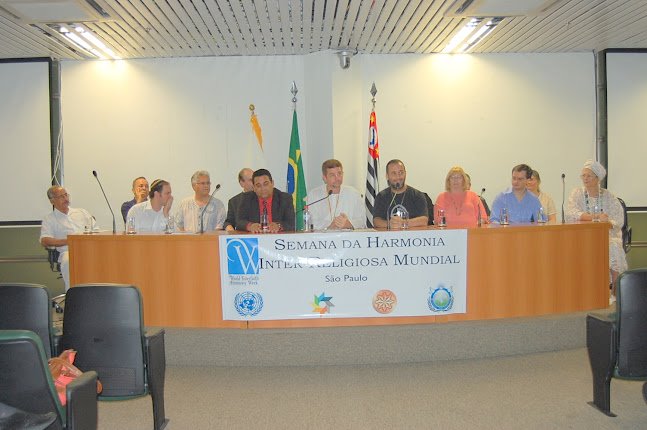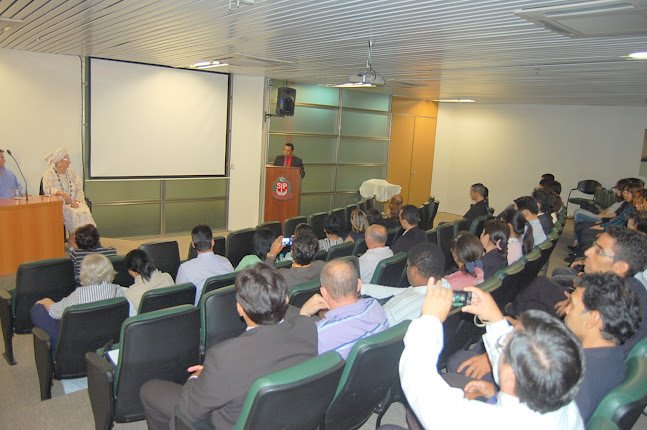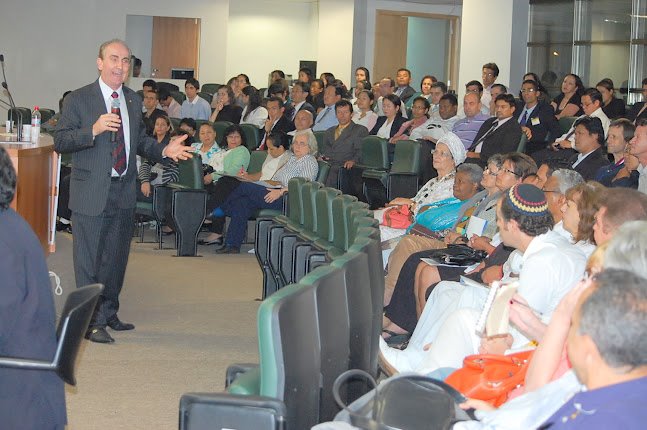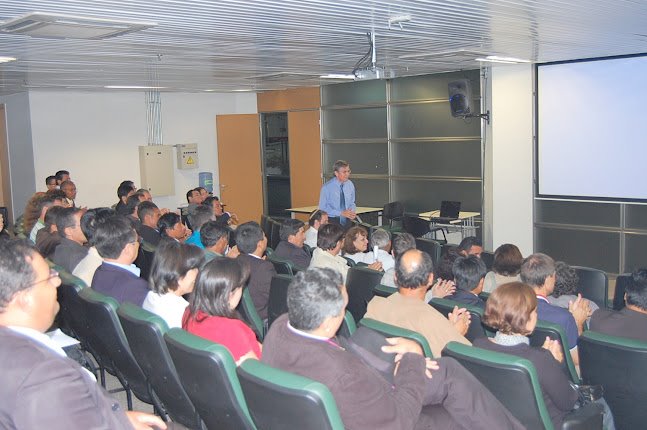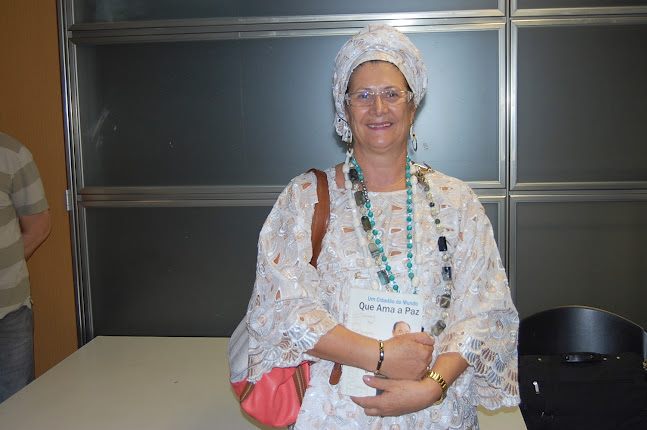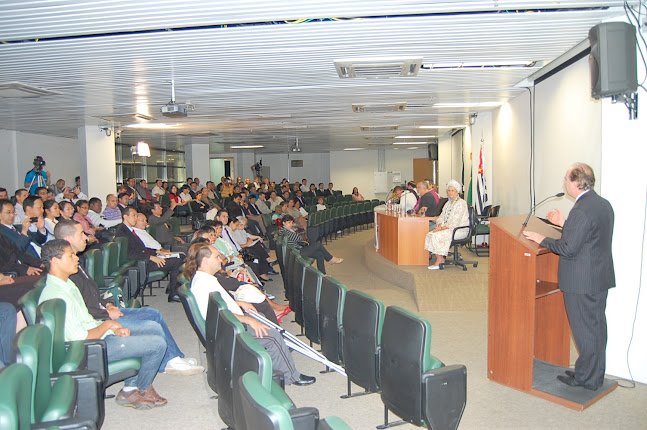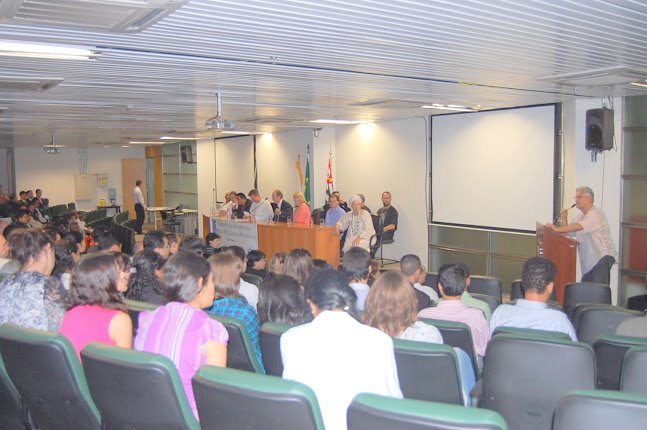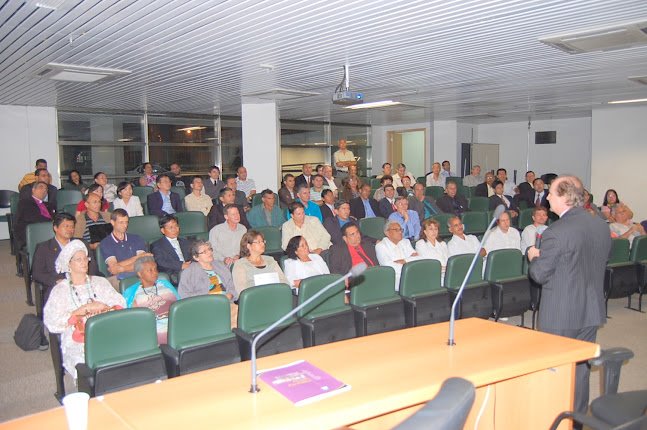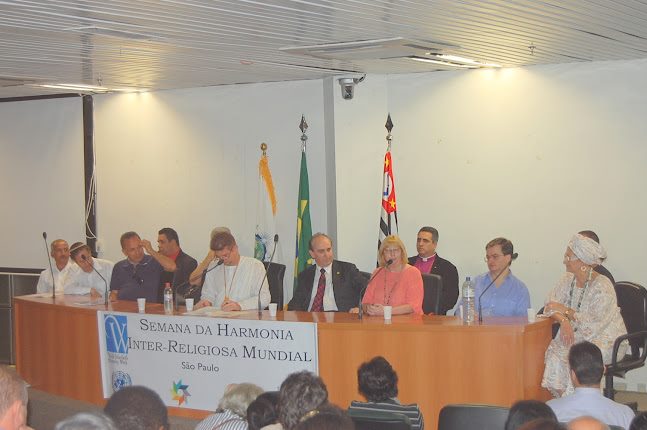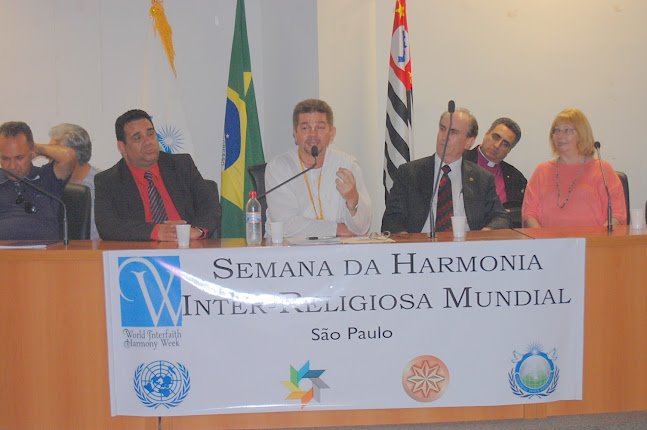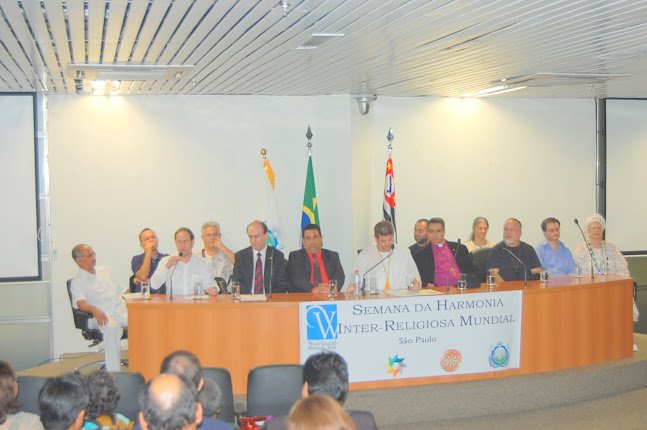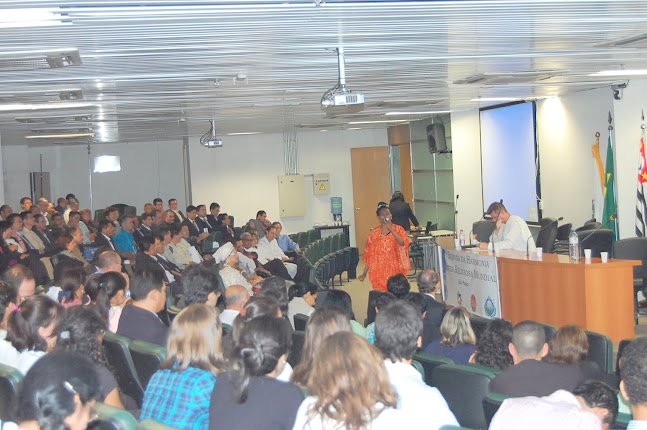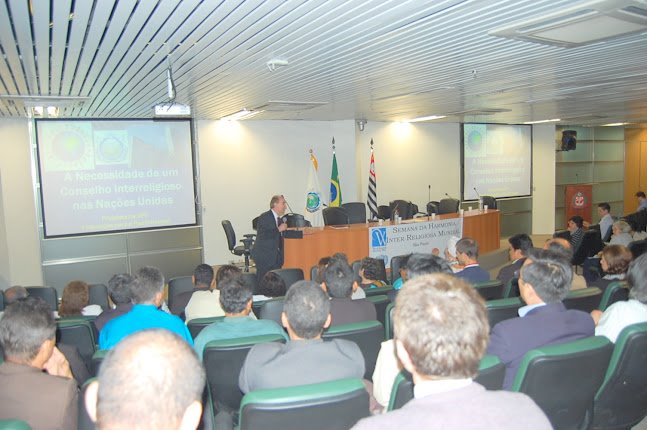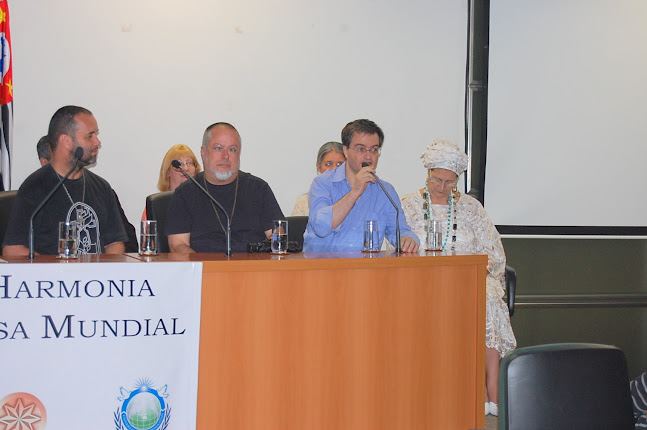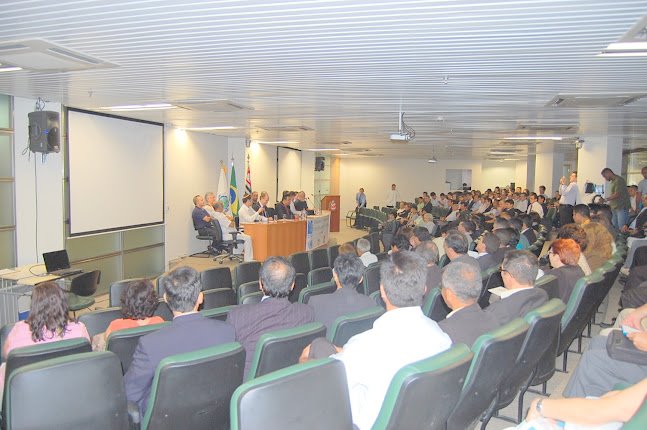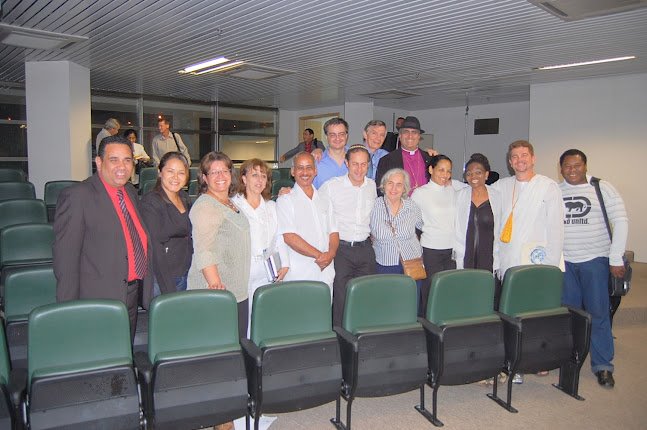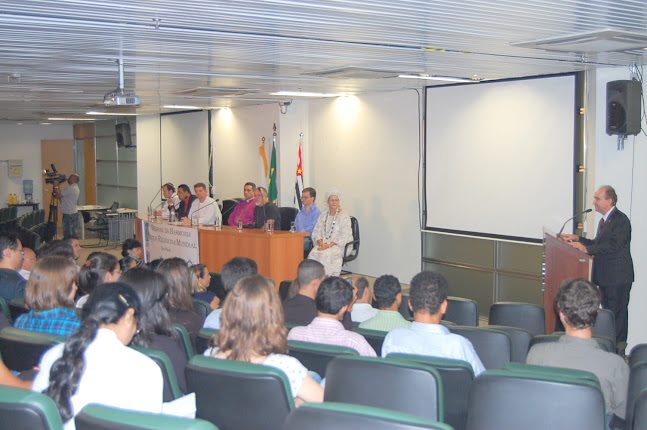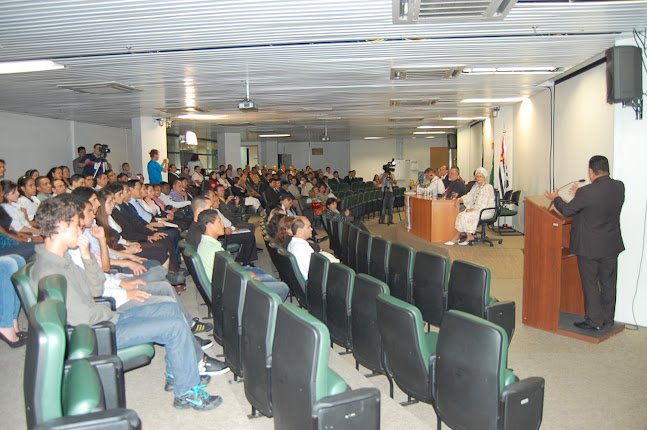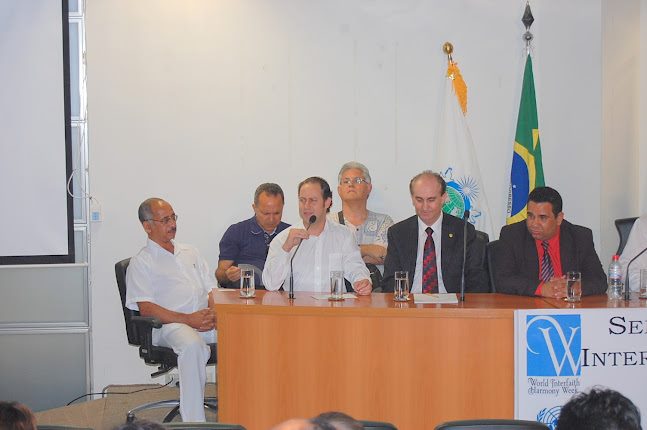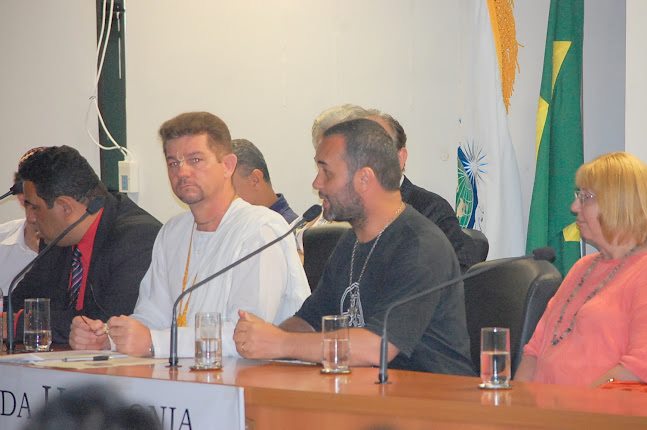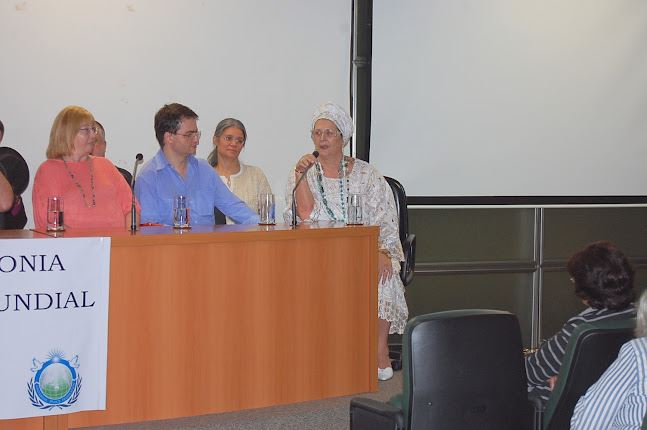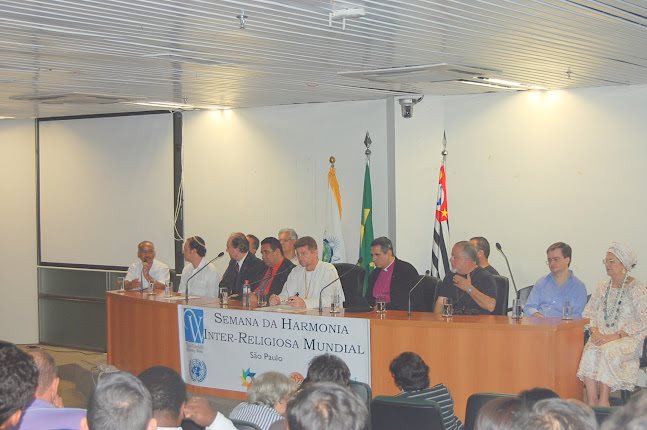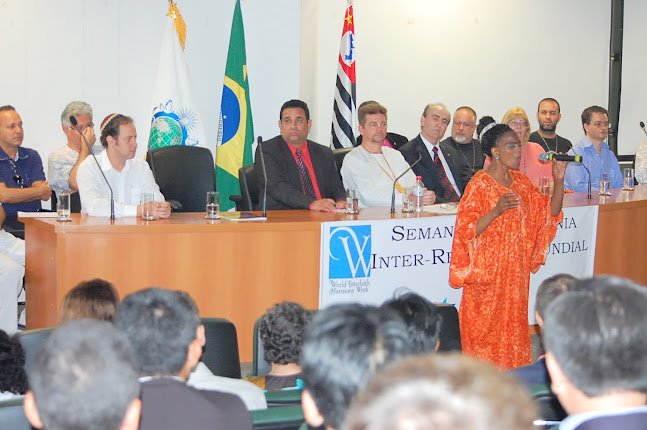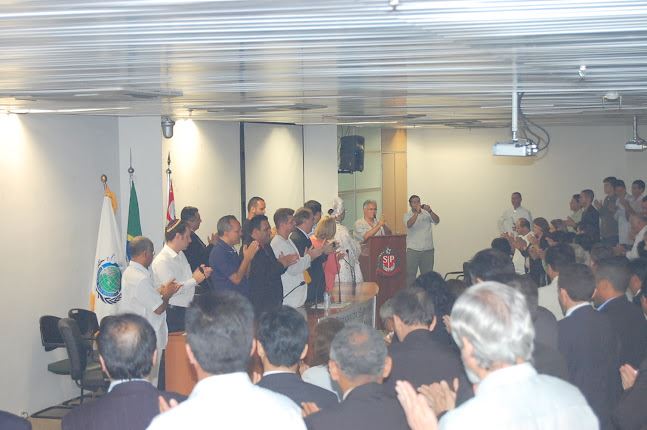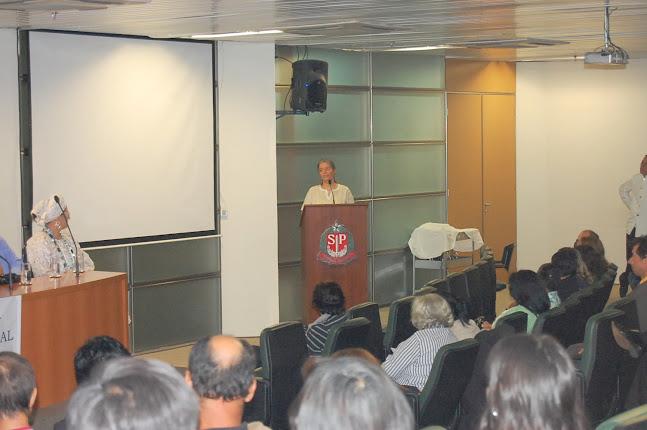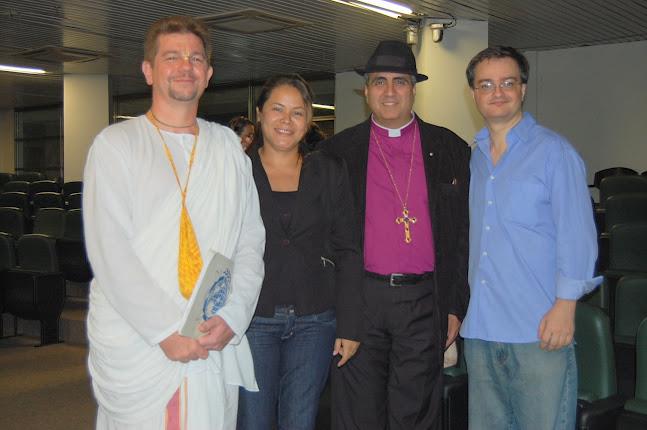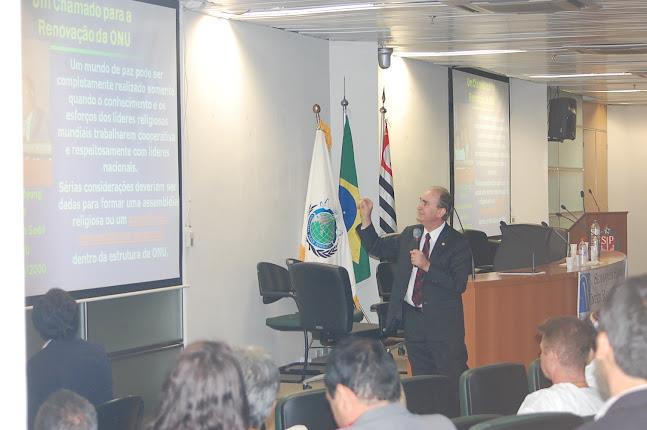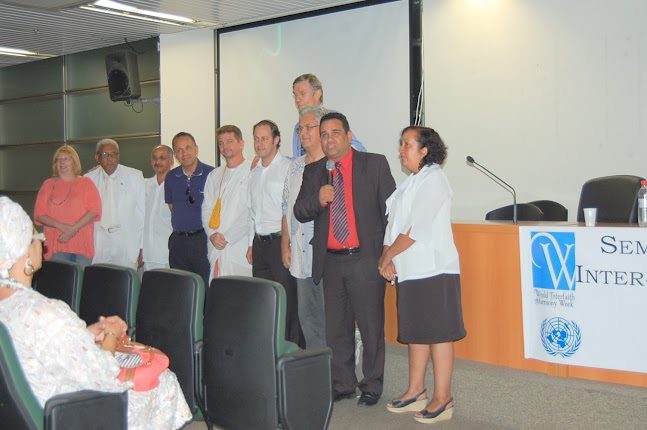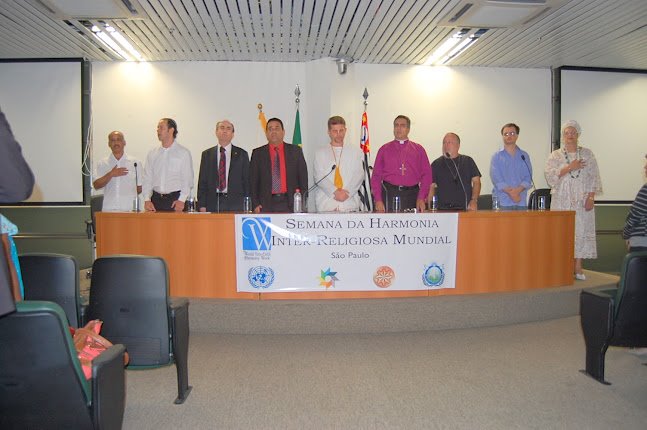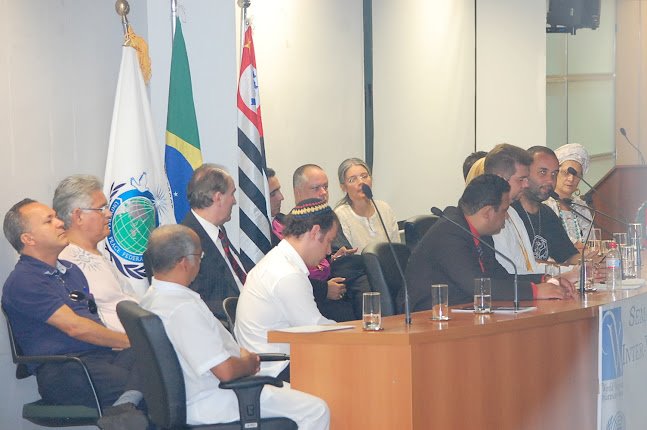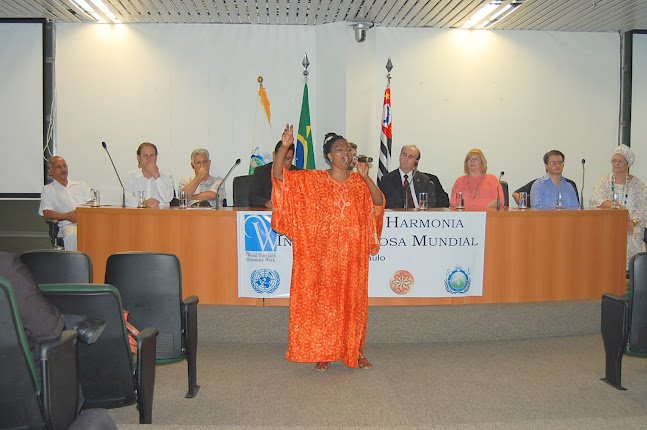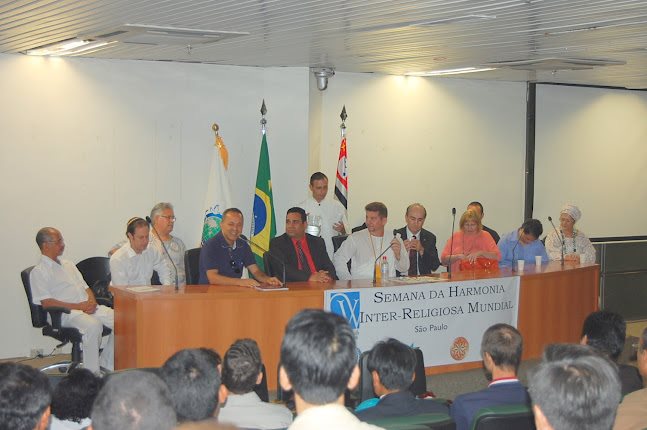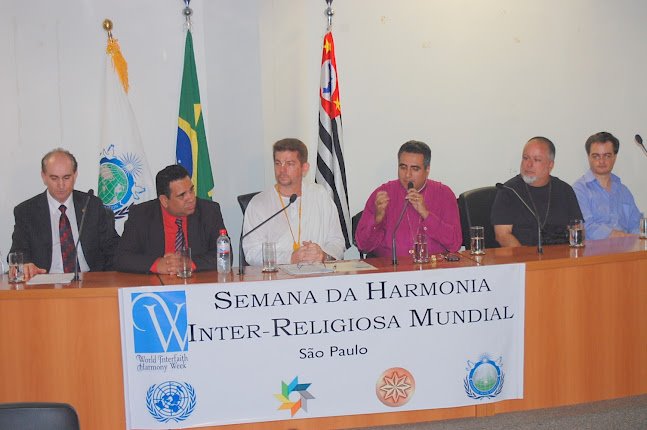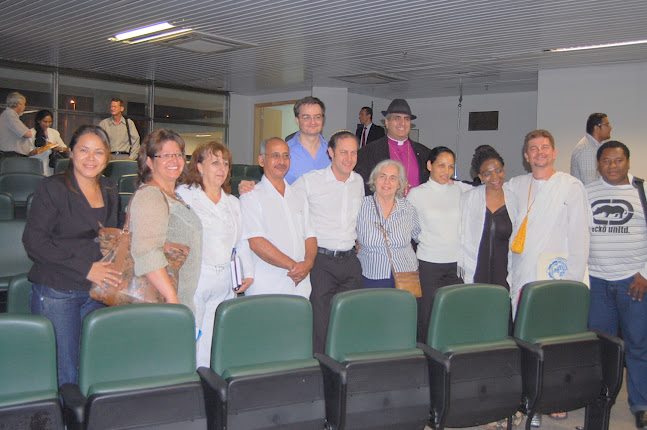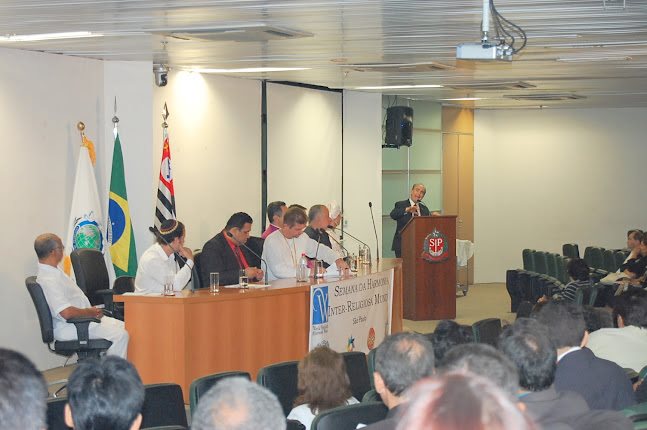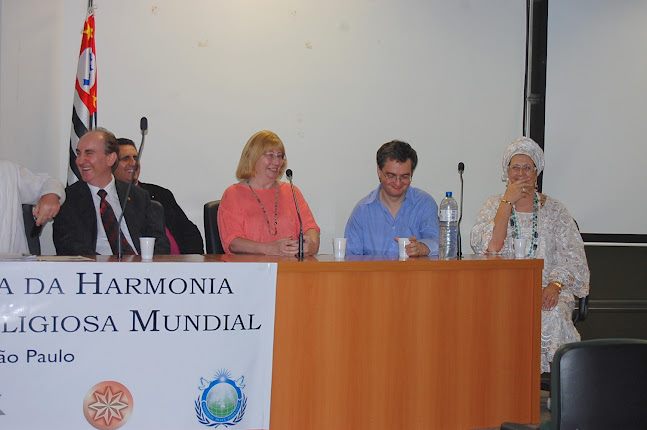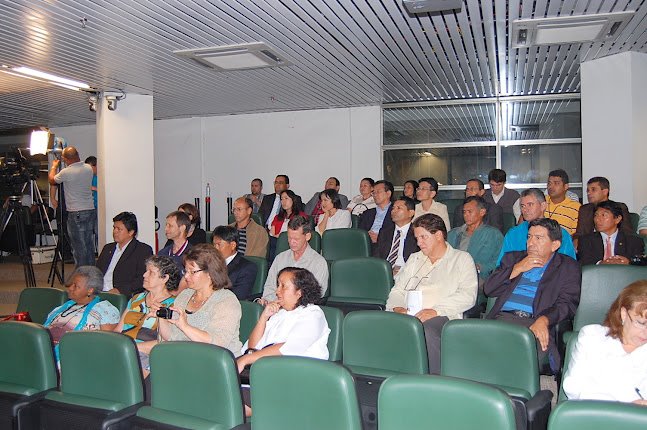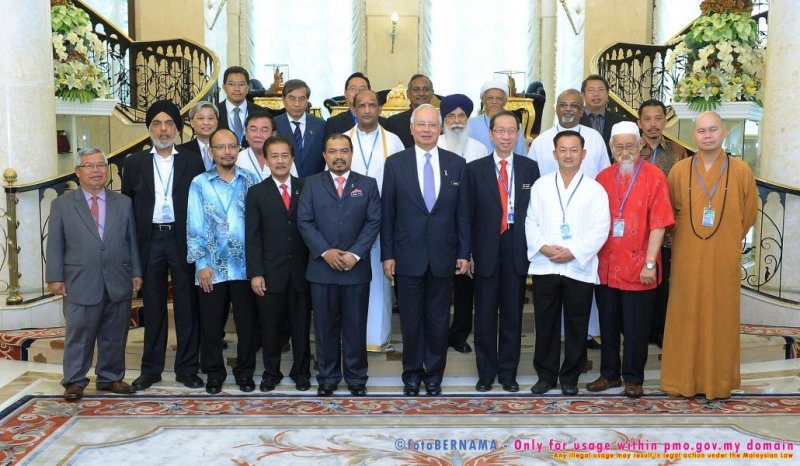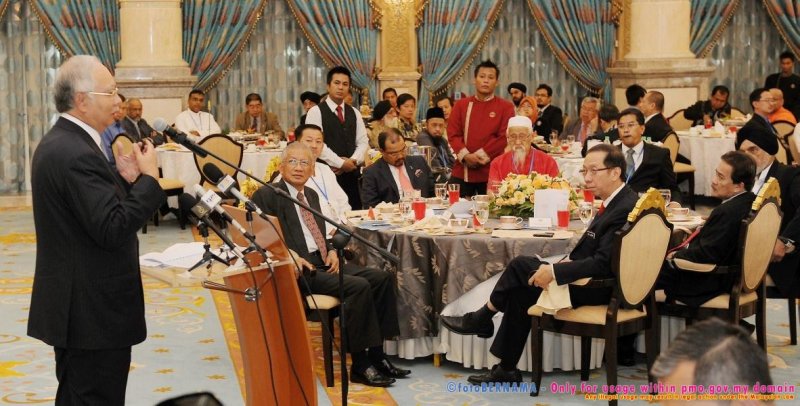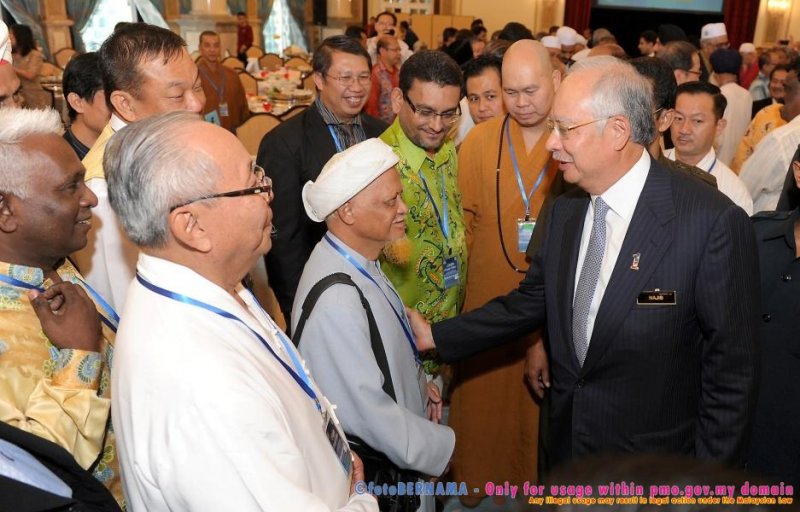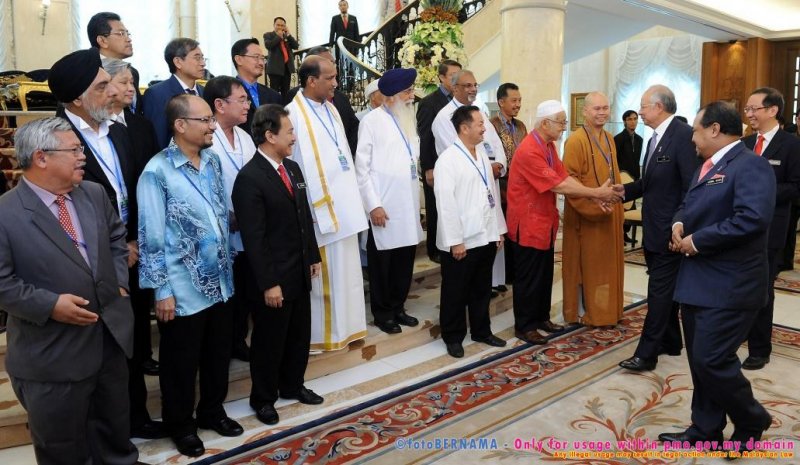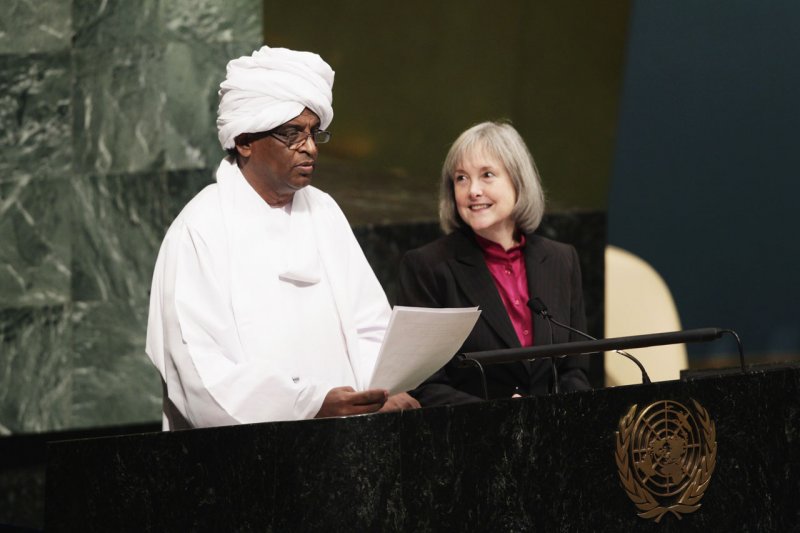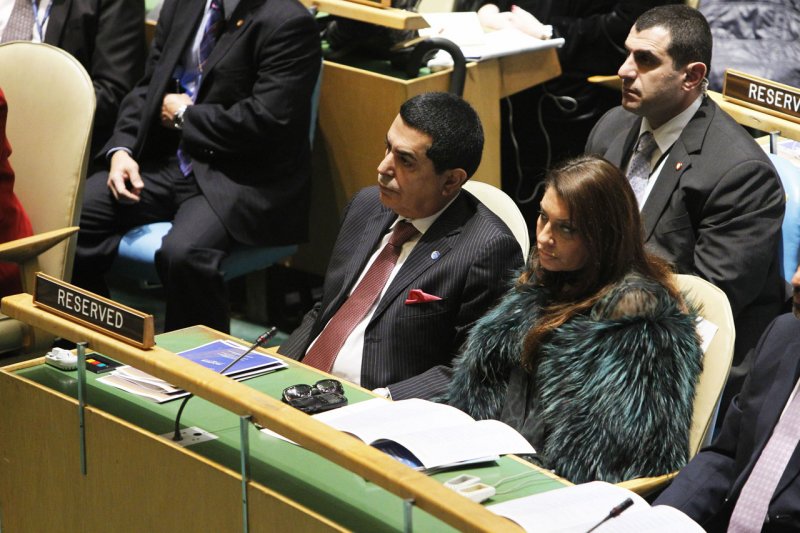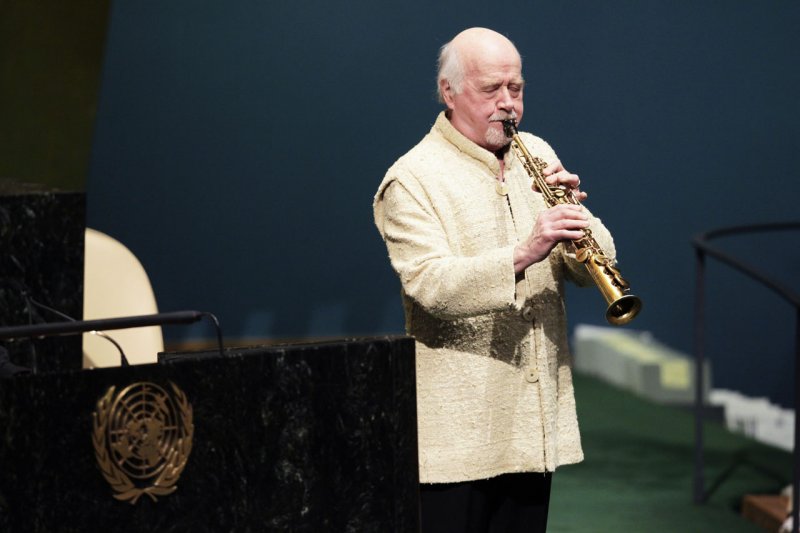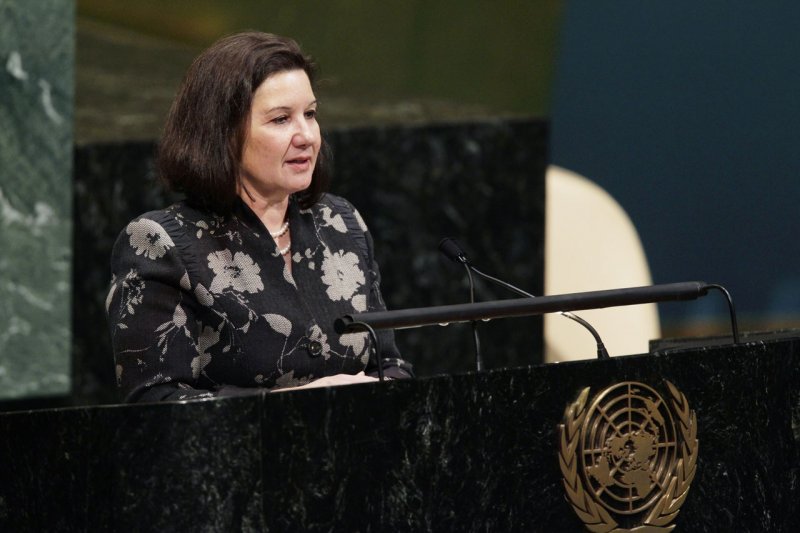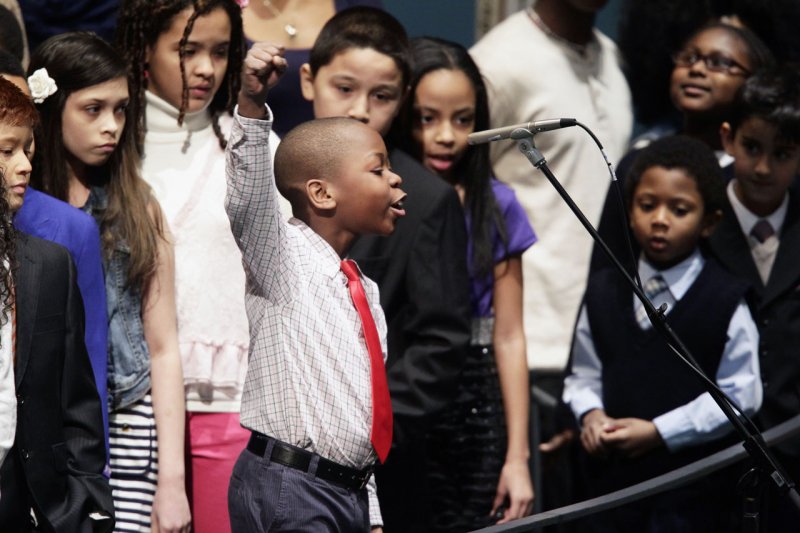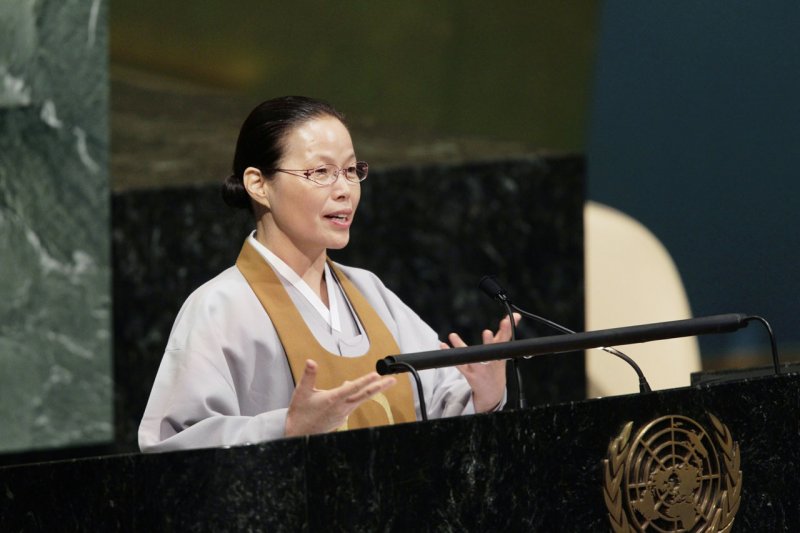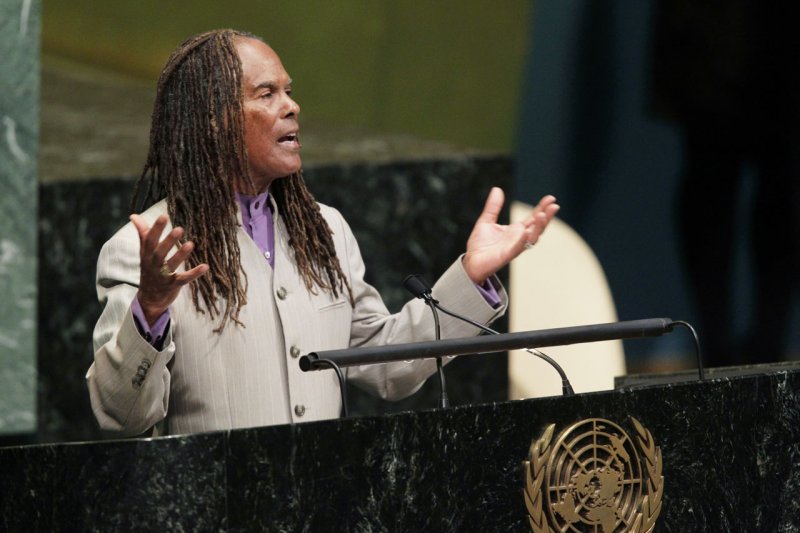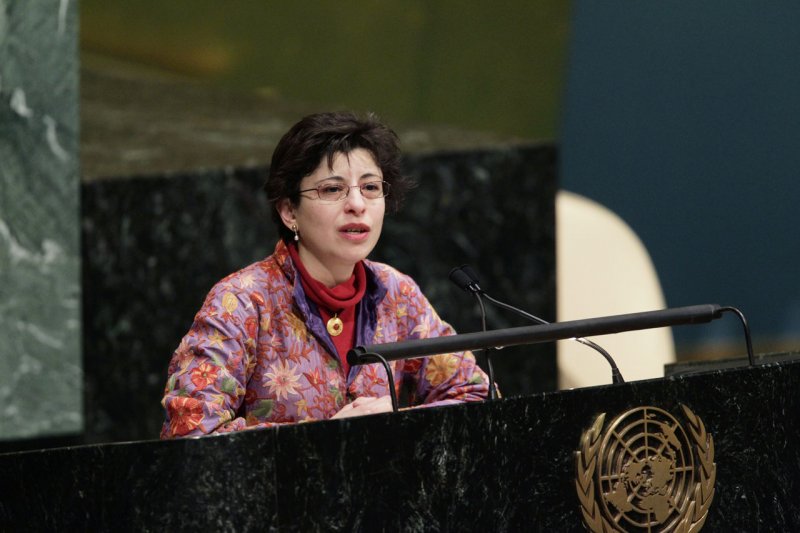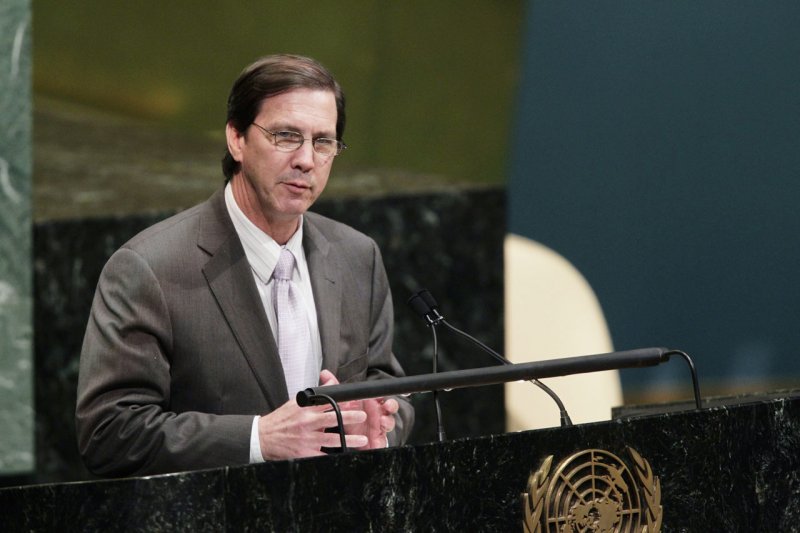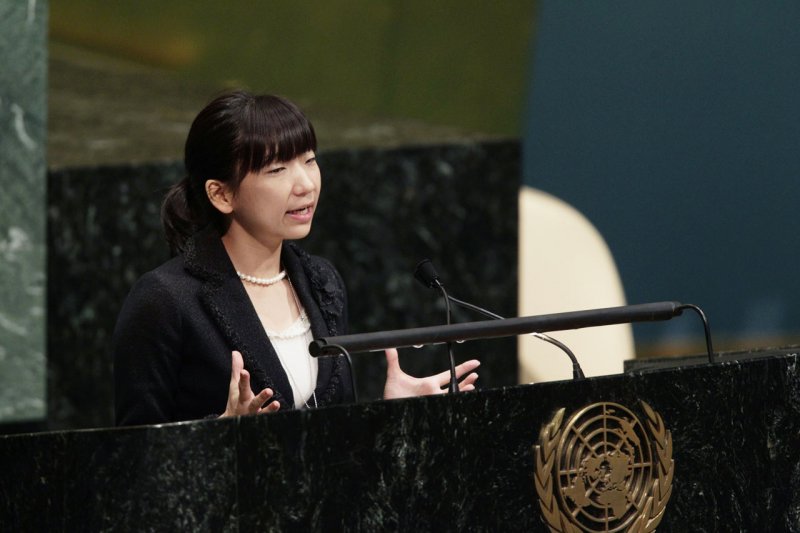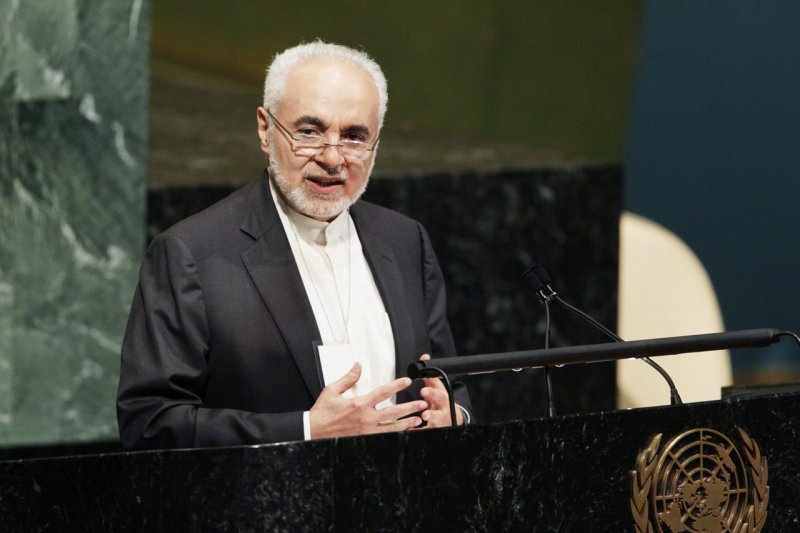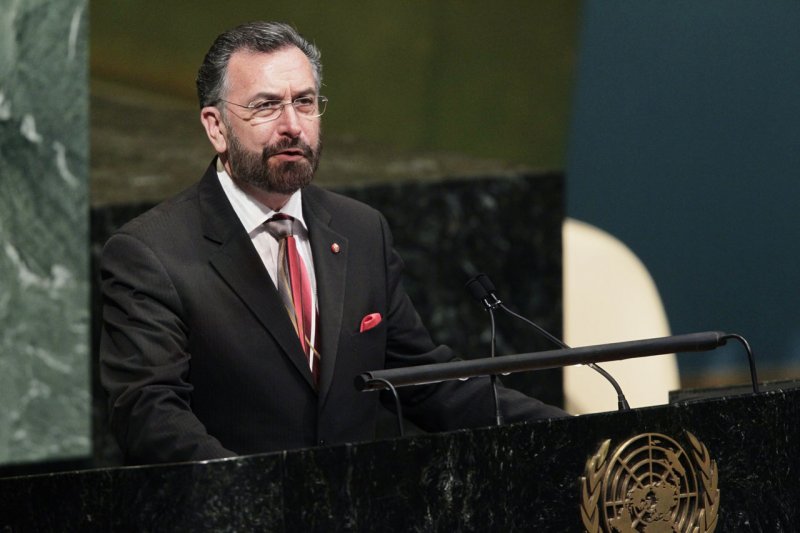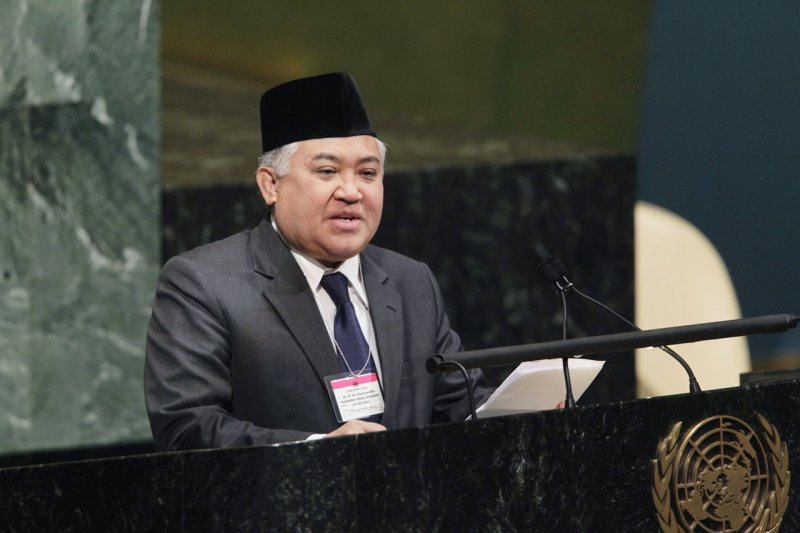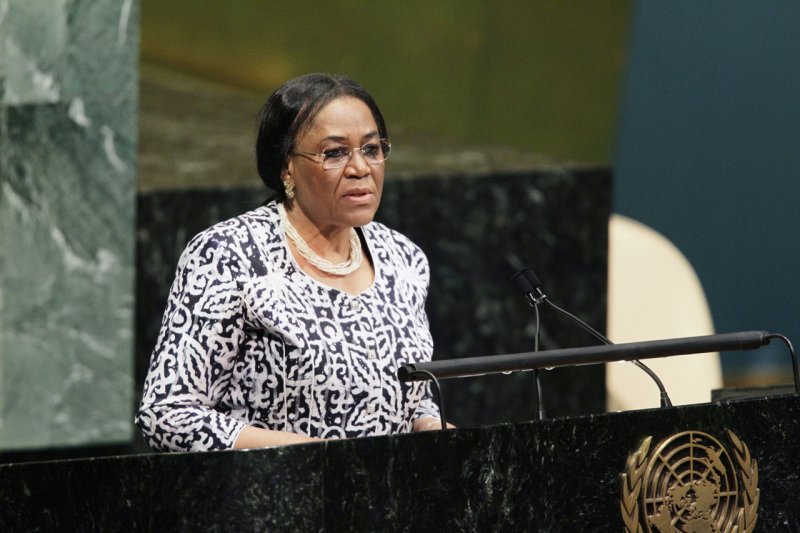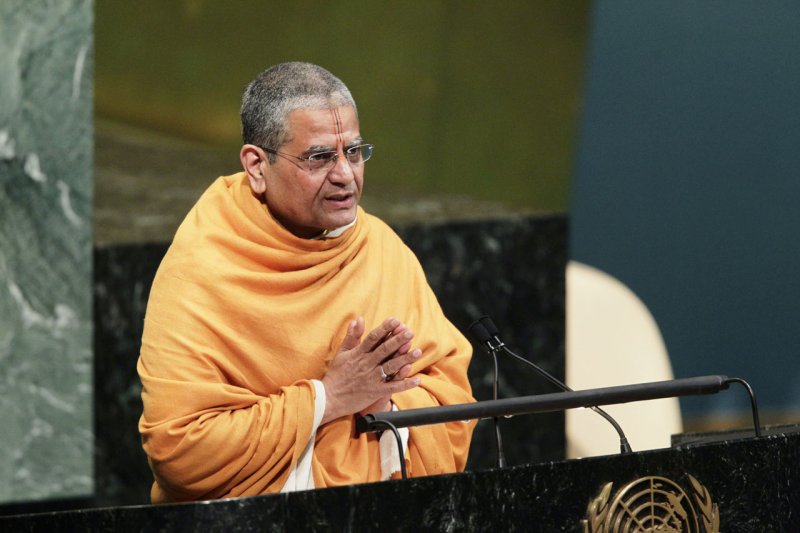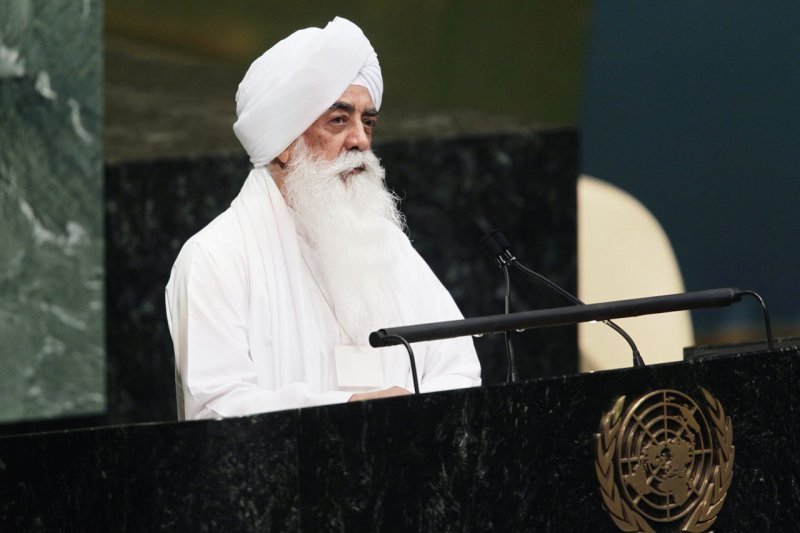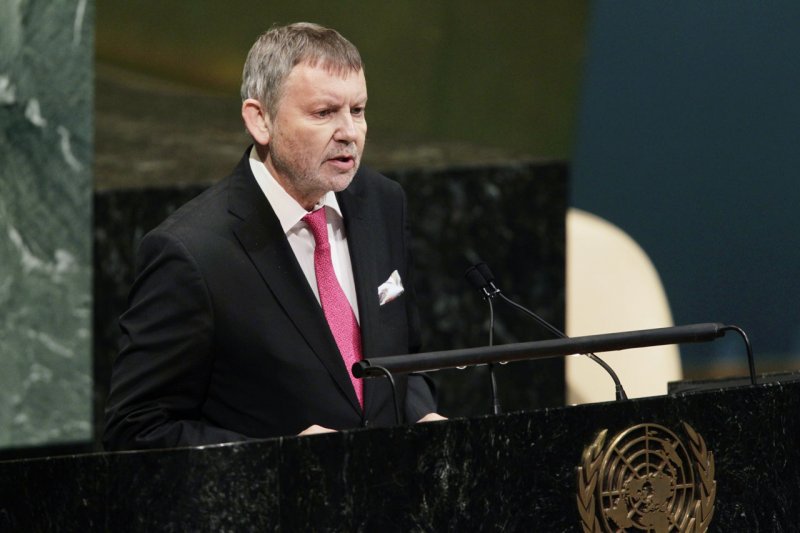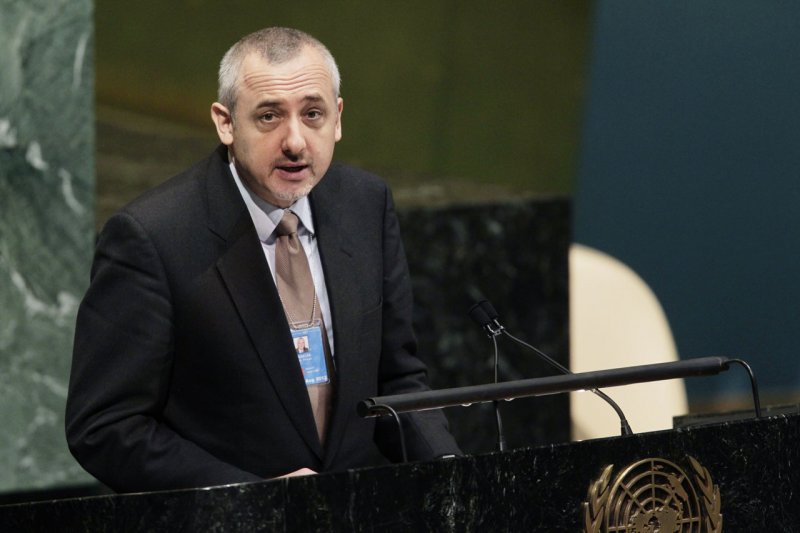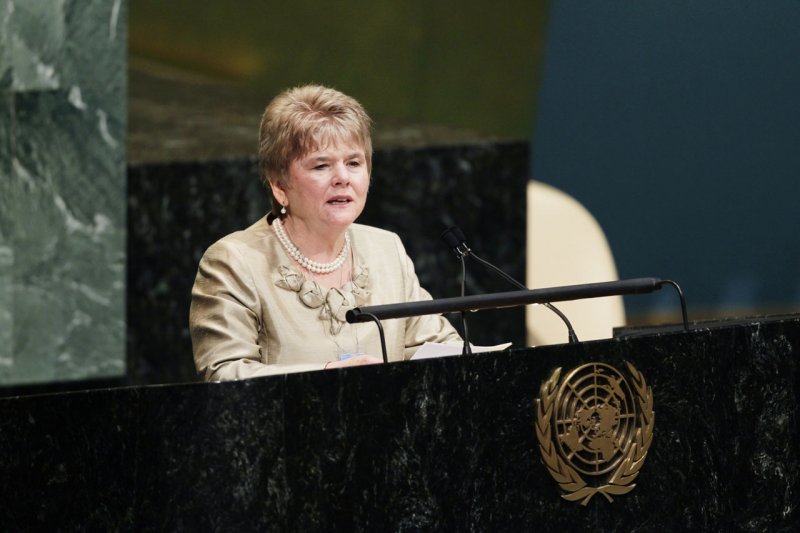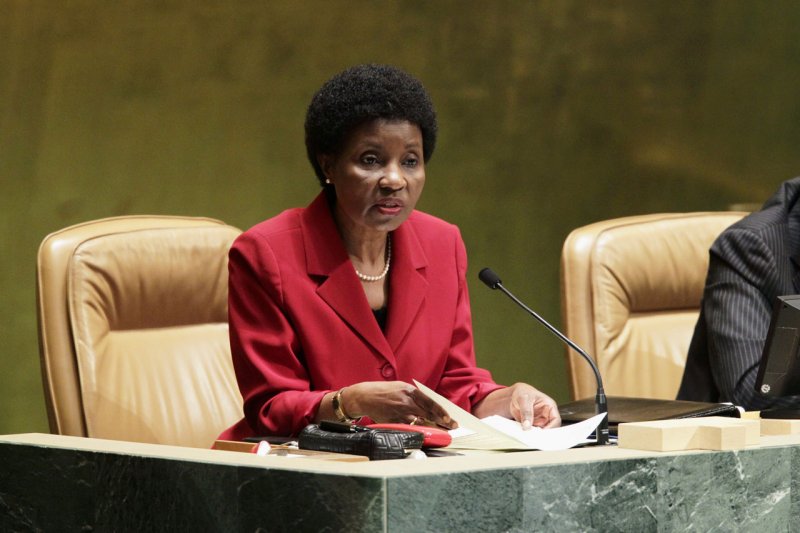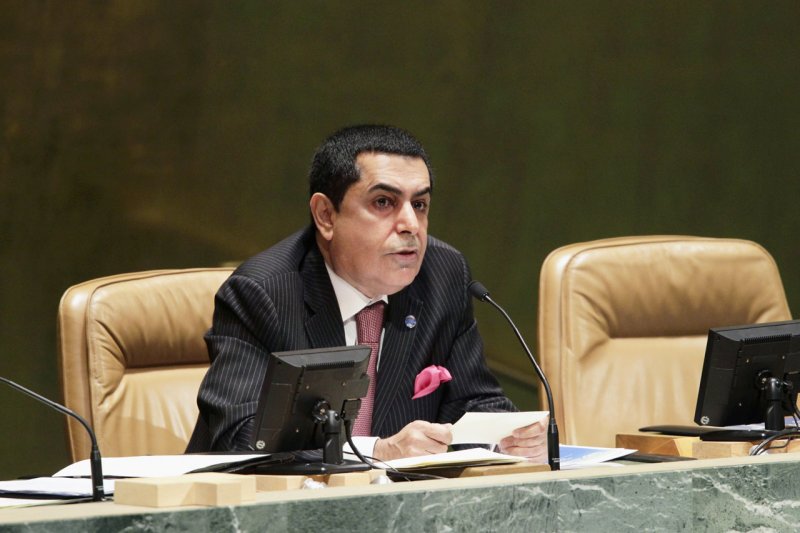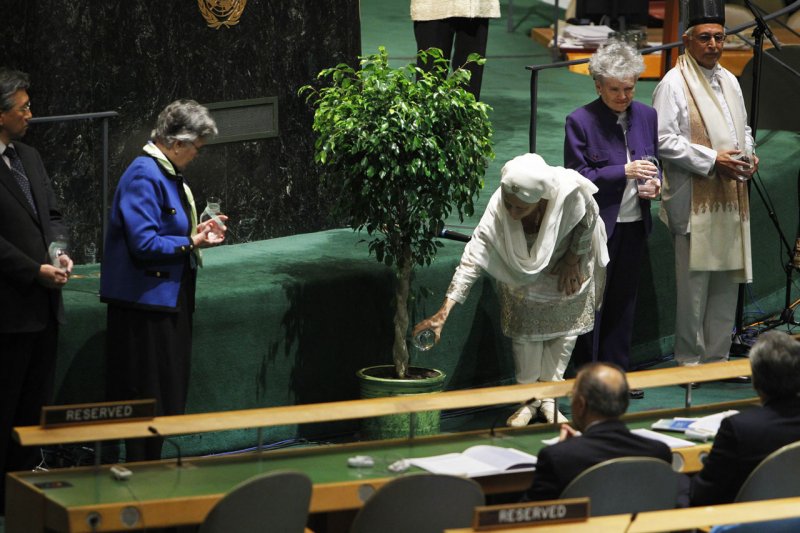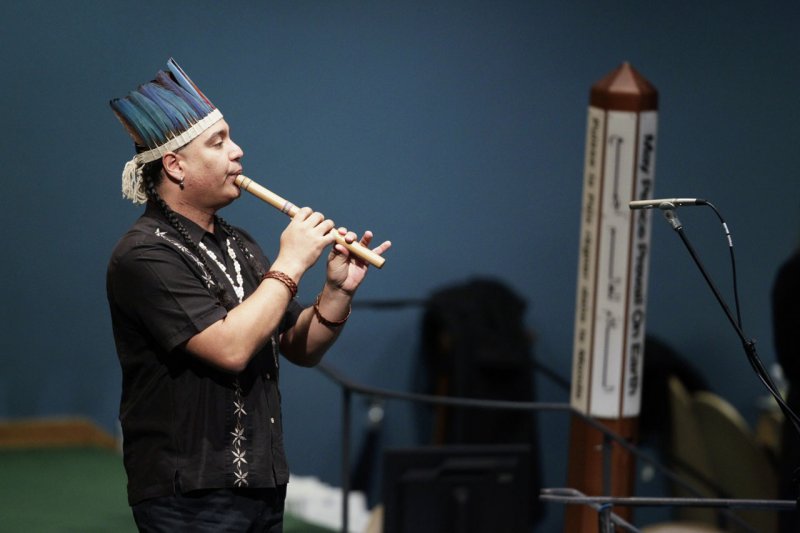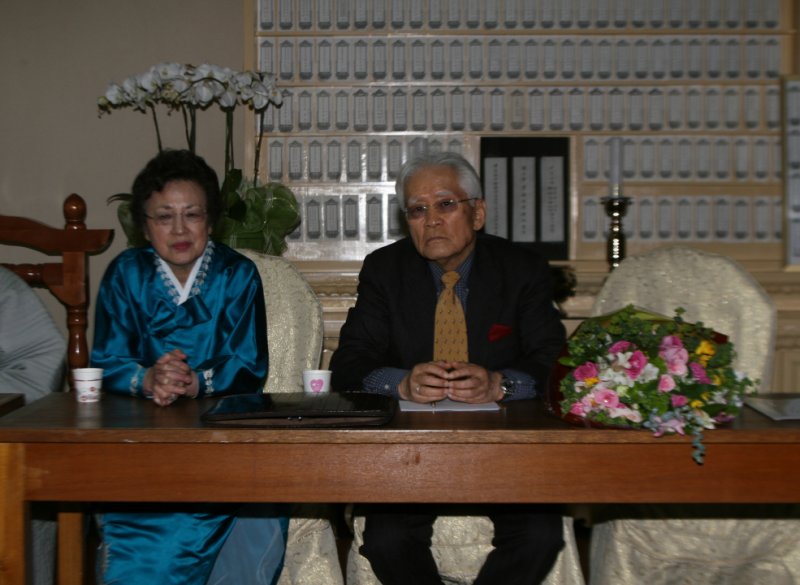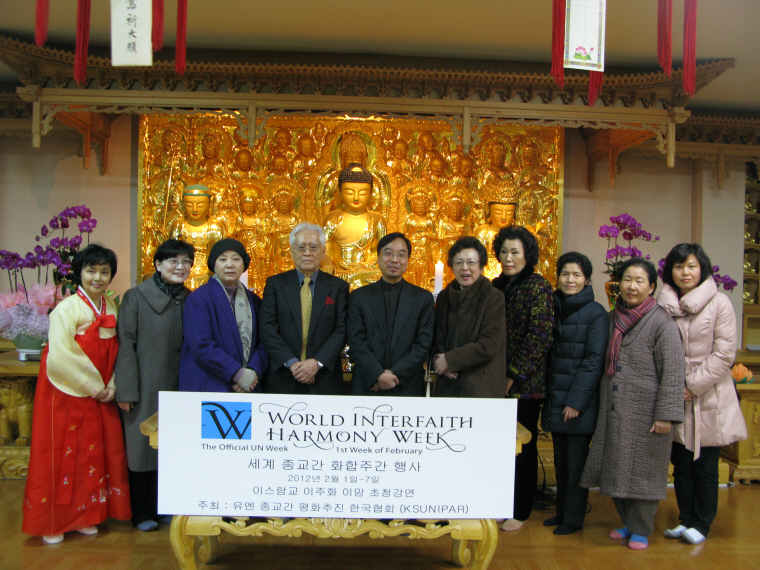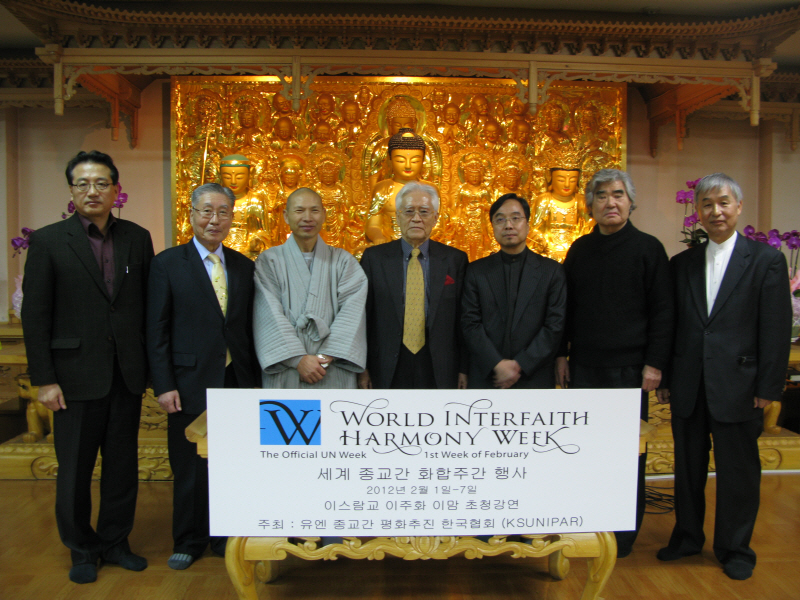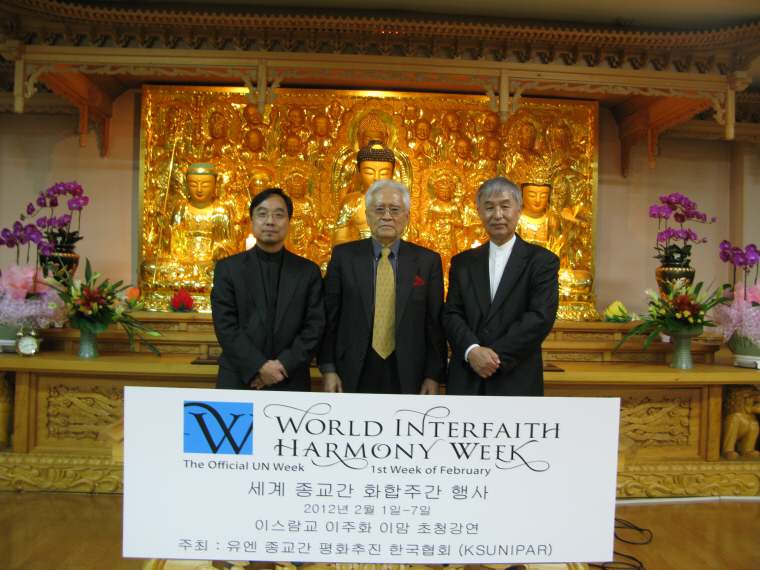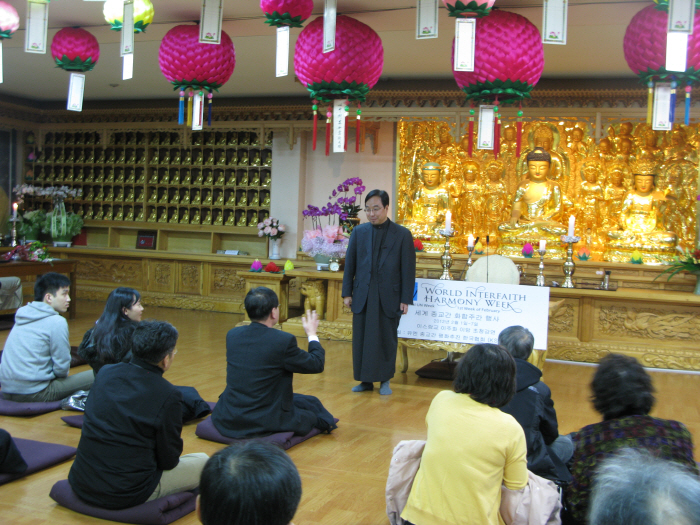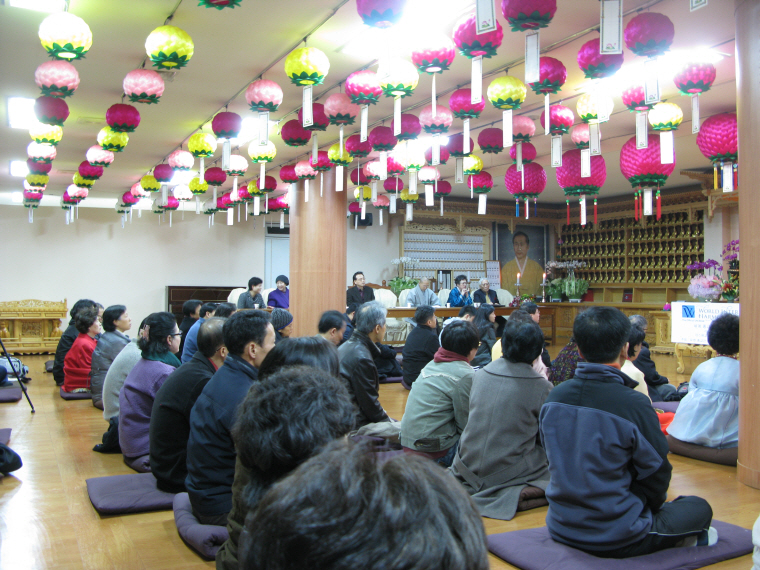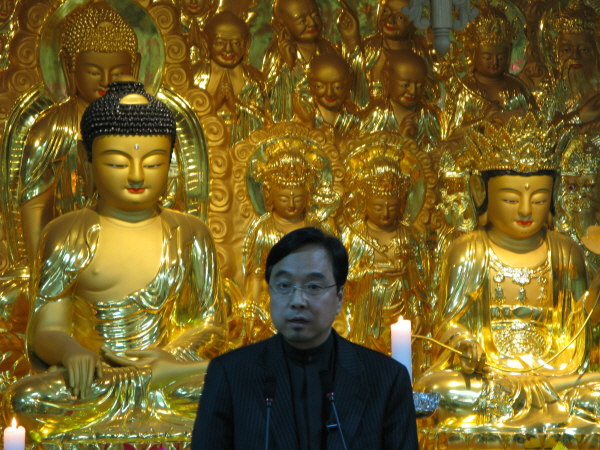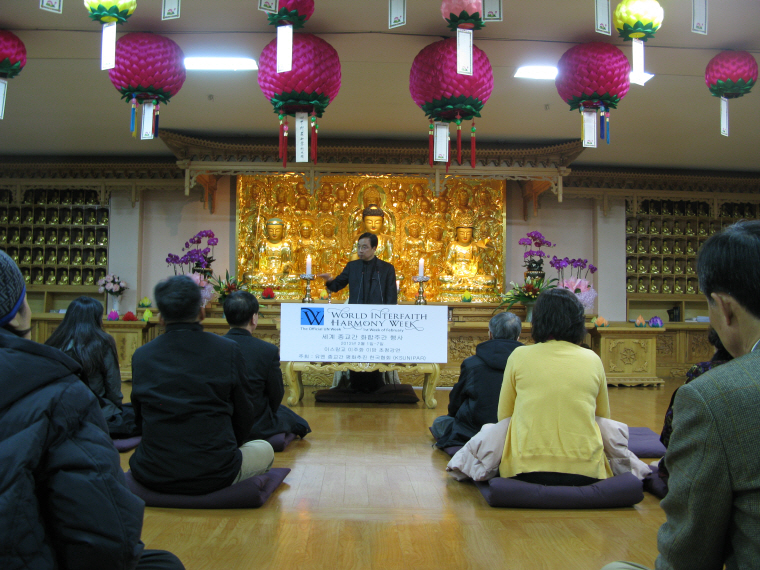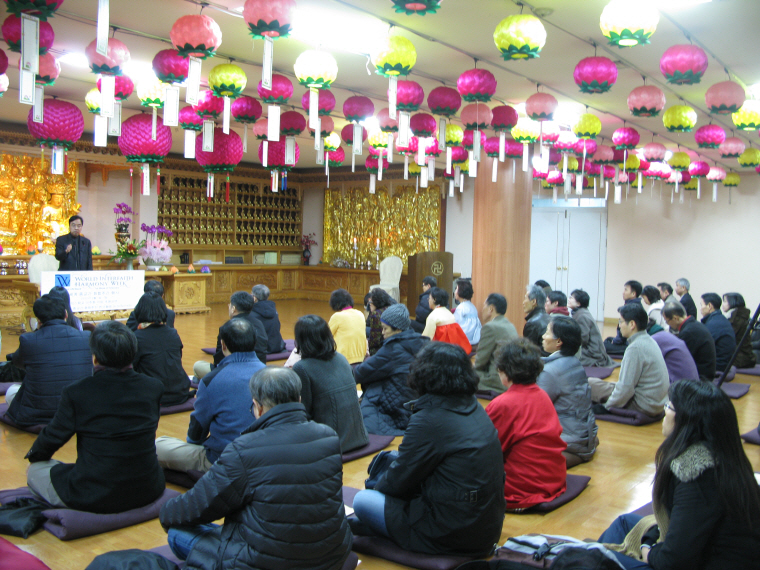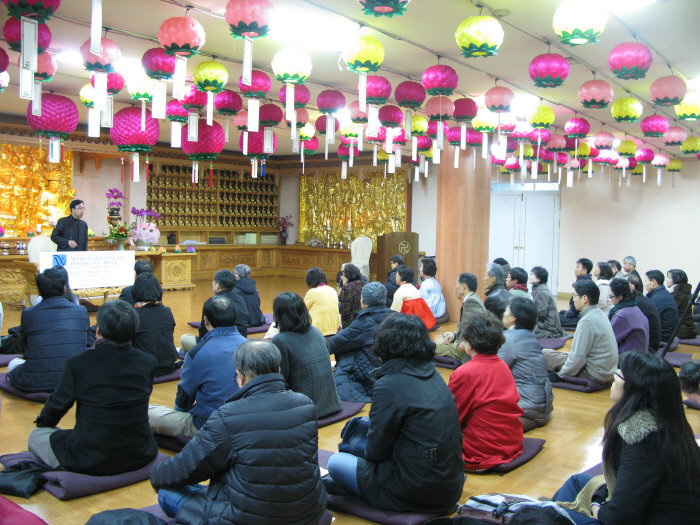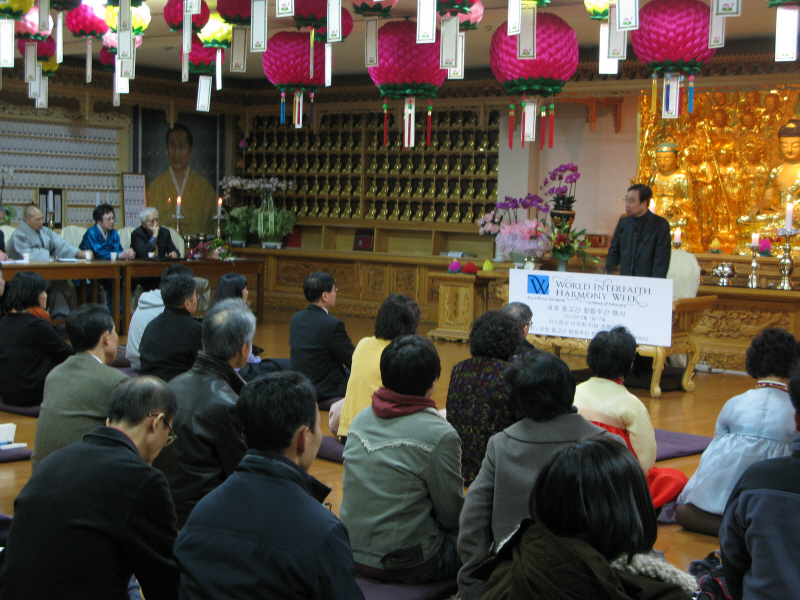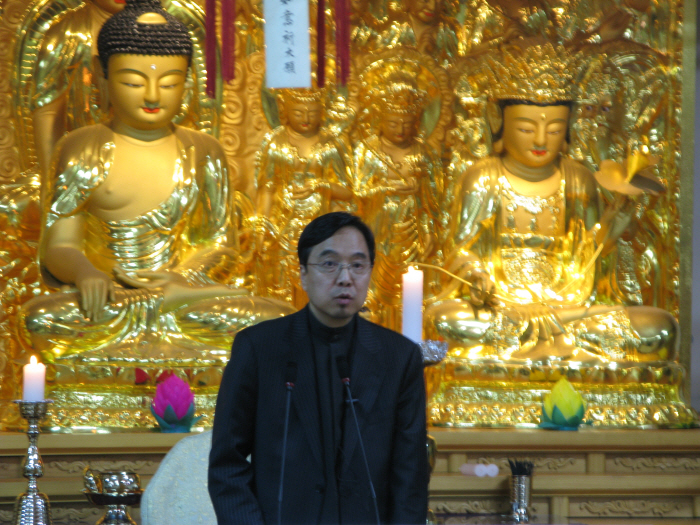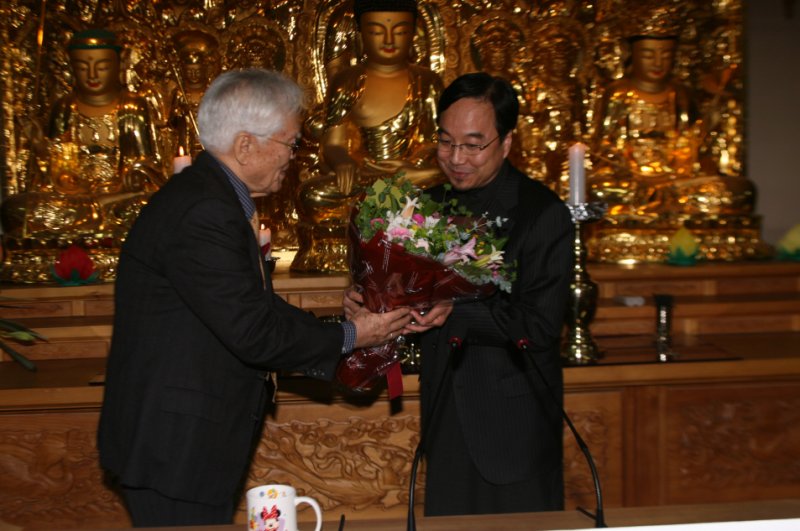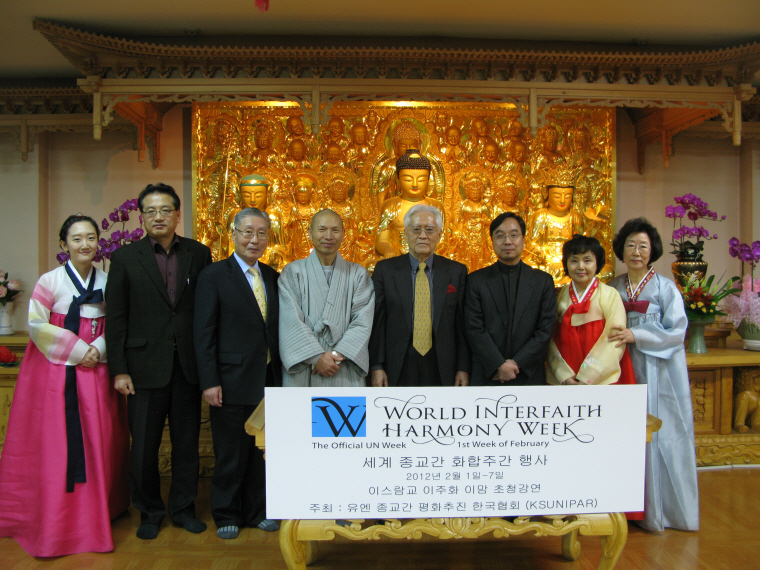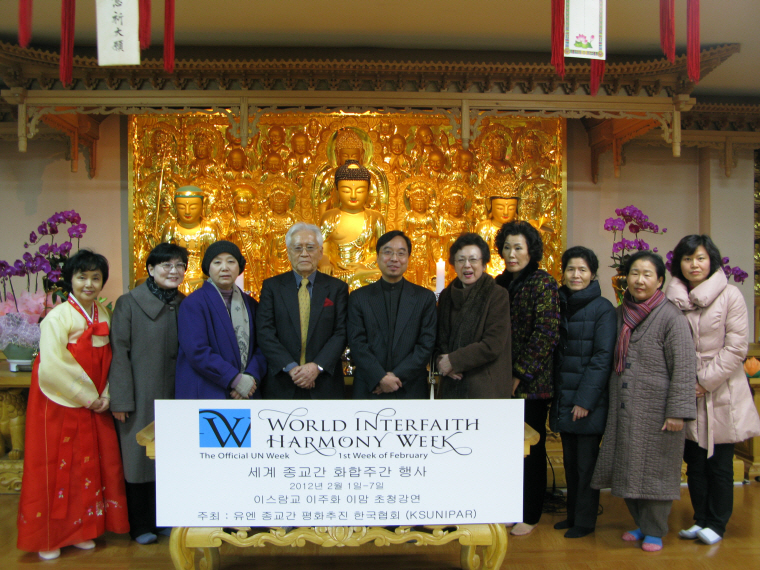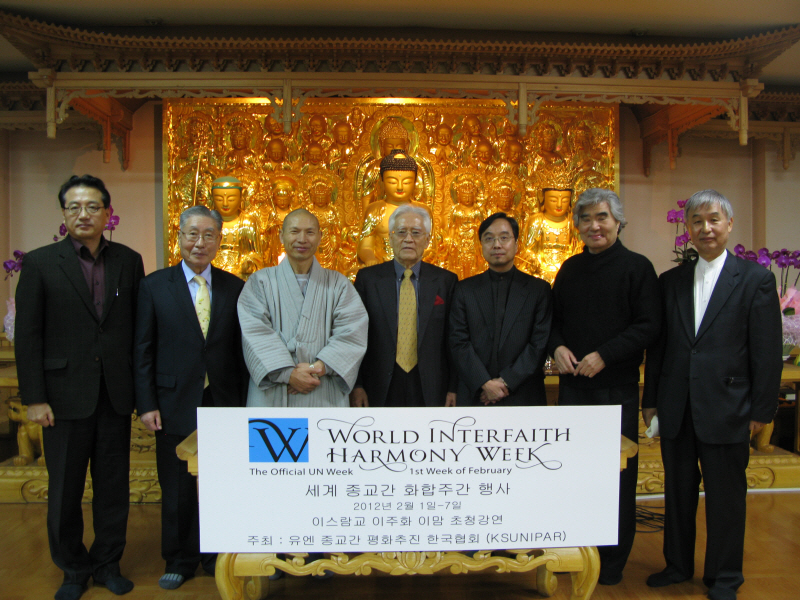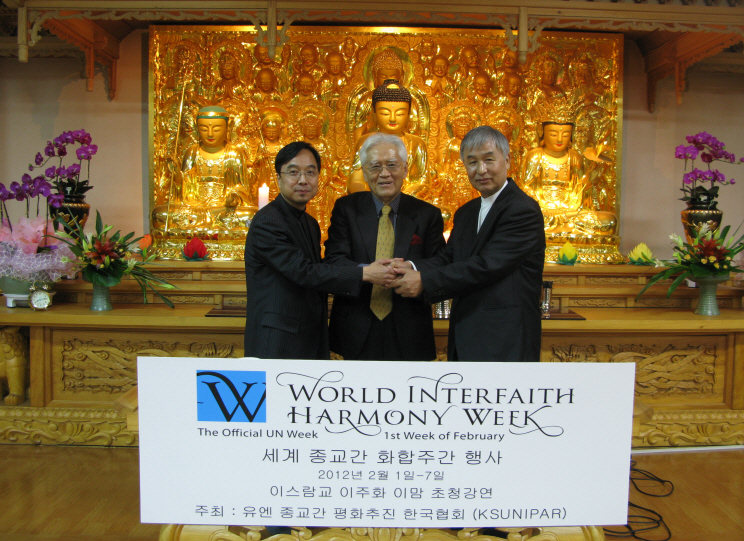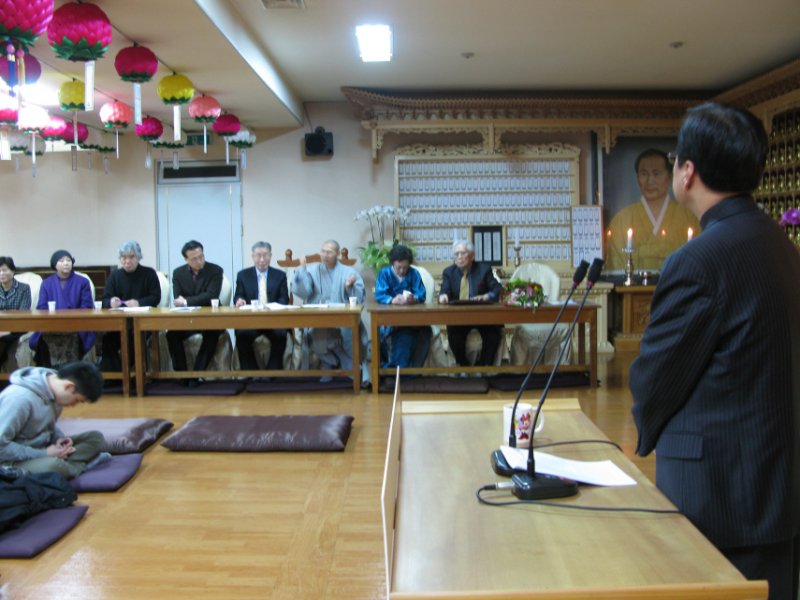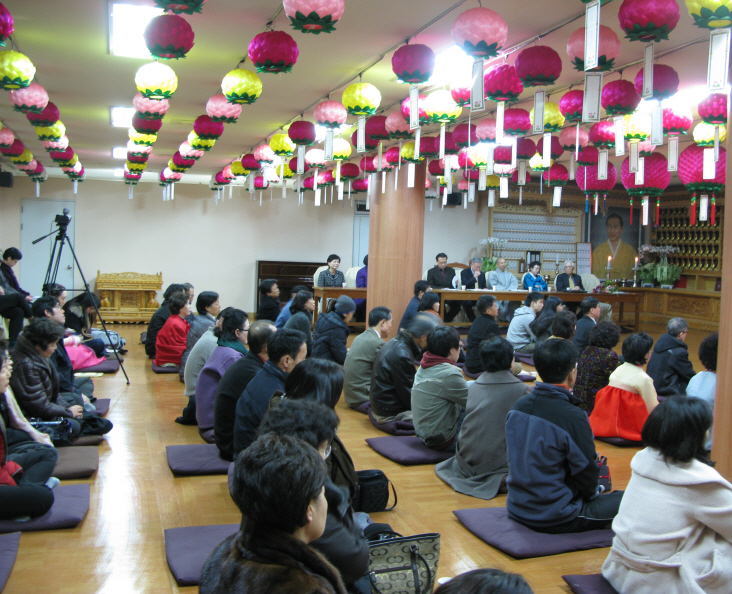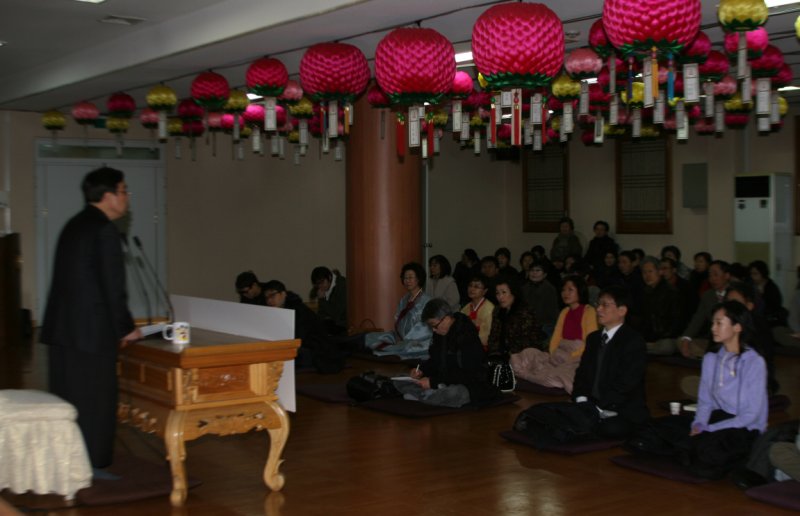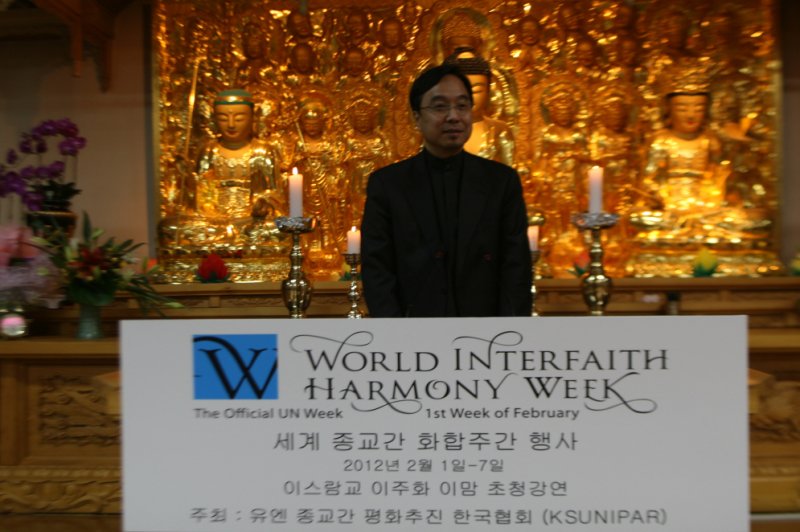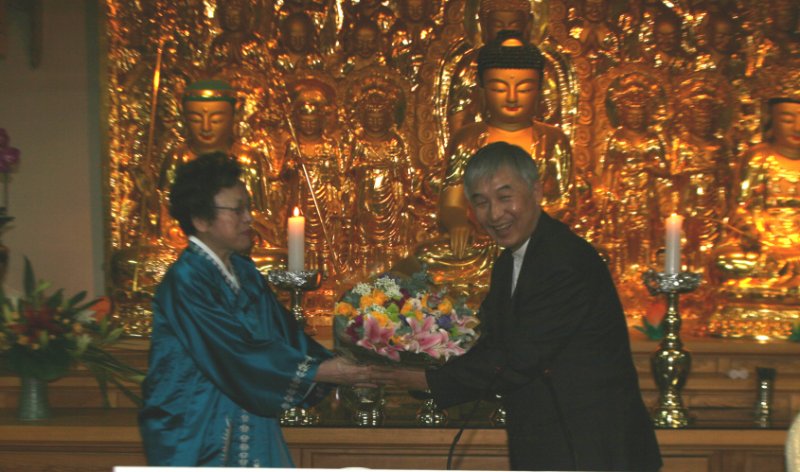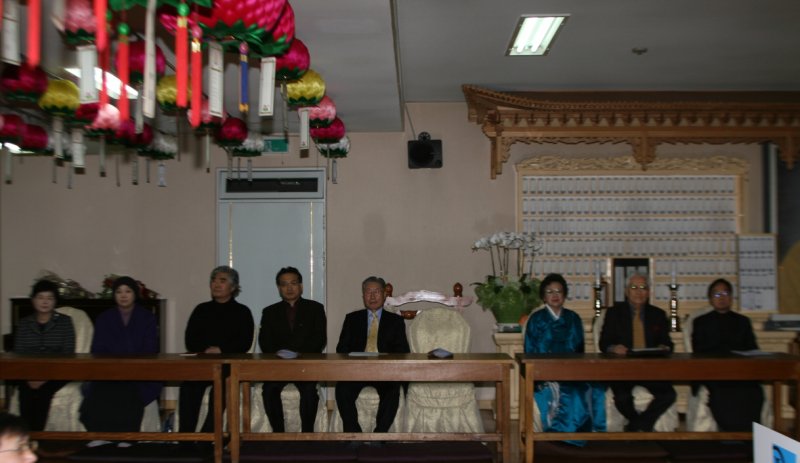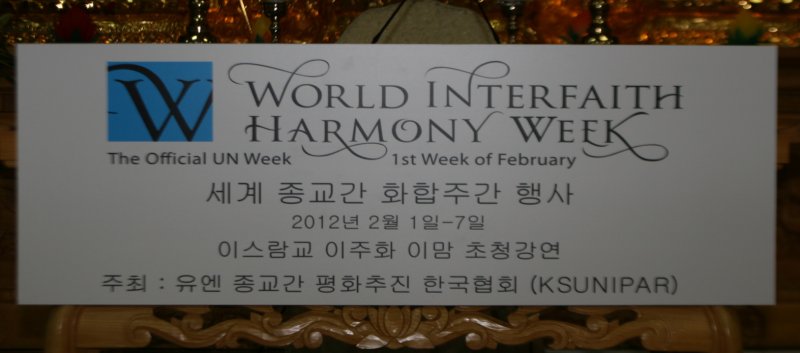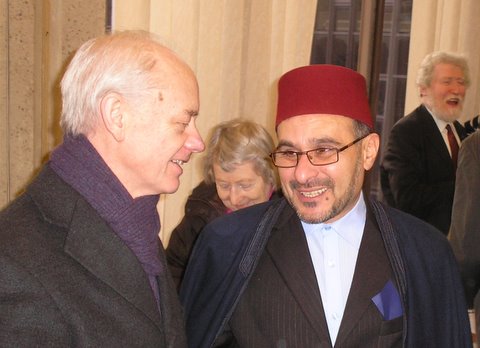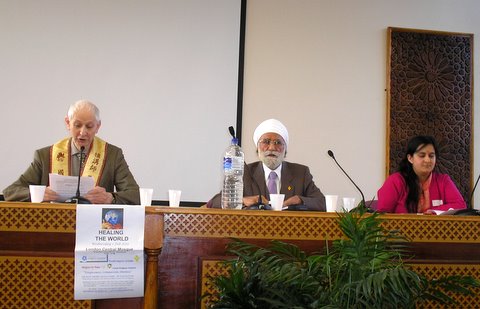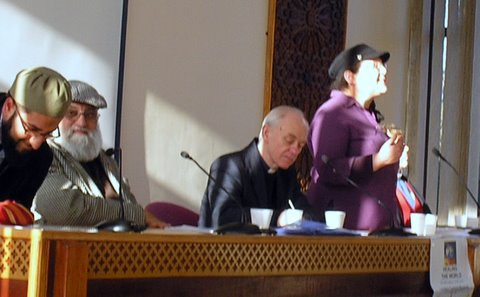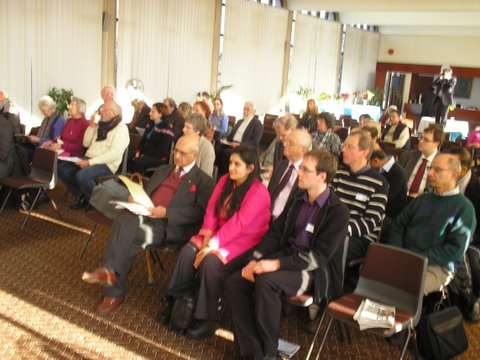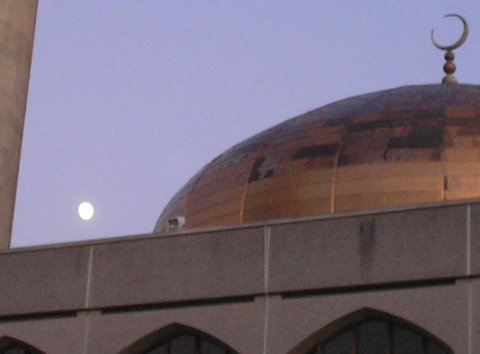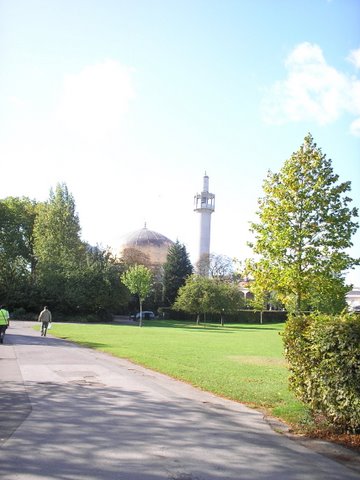Interfaith Harmony Seminar organised by The Madin Islamic Academy, Kerala, India, and the International Islamic University of Malaysia
STAFF REPORTER
The Madin Islamic Academy at Melmuri here and the International Islamic University of Malaysia will jointly organise an “interfaith harmony seminar” in Malaysia on March 1. The seminar will be part of a UN initiative for Interfaith Harmony and Tolerance.
Scholars from across the world will attend the seminar. Calicut University Vice Chancellor M. Abdul Salam; historian and former Vice Chancellor K.K.N. Kurup; and Madin Islamic Academy chairman Sayed Ibrahim Khaleel Bukhari will represent India at the seminar.
“The World Interfaith Harmony Week is not a call to water down one’s faith but to respect our differences and personal beliefs and to unite around the basic principles that people of all beliefs agree upon, and to understand that harmony can come only if we build upon a foundation of dialogues,” said Mr. Bukhari here on Wednesday.
The Matheson Trust and The Woolf Institute
Last Tuesday 7 February The Matheson Trust and The Woolf Institute celebrated together the UN World Interfaith Harmony Week 2012. On the grounds of St Edmund’s College, Cambridge, representatives of five major religious traditions joined us to share with the audience live performances of some of their most significant prayers and sacred songs.
The World Interfaith Harmony Week 2012 at Washington Times Foundation
Introduction to Speech at the World Interfaith Harmony Week 2012
Good Evening Extinguished Guests, Ladies and Gentlemen
My name is Pramaha Thanat Inthisan. I am a Thai Buddhist monk residing at the temple Wat Thai Washington, D.C., in Silver Spring, Maryland. I am the representative from the Theravada tradition. Welcome to the World Interfaith Harmony week tonight. I’m glad that you are able to cerebrate the religions and cultures the we share as we create a path towards peace.
Today the followers of the most compassionate religious leader have a special duty to work for the establishment of peace in the world and to show an example to other by following their Master’s advices. The Buddha said that “All tremble at punishment, all fear death; comparing others with oneself, one should neither kill or cause to kill. (Dhammapada 129)
Peace is always obtainable. But the way to peace is not only through prayers and rituals. Peace is the result of man’s harmony with his fellow beings and with his environment. The peace that we try to introduce by force is not a lasting peace. It is an interval in between the conflict of selfish desire and worldly conditions.
Peace can not exist on this earth without the practice of tolerance. To be tolerant, we must not allow anger and jealousy to prevail in our mind. The Buddha says, “No enemy can harm one so much as one’s own thoughts of craving, hate and jealousy. (Dhammapada 42)
The world is like a mirror and if you look at the mirror with a smile face, you can see your own, beautiful smiling face. On the other hand, if you look at it with a long face, you will invariably see ugliness. Similarly, if you treat the world kindly the world will also certainly treat you kindly. Learn to be peaceful with yourself and the world will also be peaceful with you.
If we are to have peace in our world, each of us has to start by developing inner peace. Otherwise there will be no true peace in the world. And the thing that ensures we have inner peace, peace in our hearts, is an unselfish concern about the welfare of other people. In fact, we need to have loving-kindness—what we Buddhists call mettā—for all living things. It can rightly be said that loving-kindness and compassion are the foundation upon which the whole building of Buddhism stands. Destruction or injury to life is strictly forbidden. Harming or destroying any being from the highest to the lowest, from a human to the tiniest insect, must be avoided regardless of the cost. The Blessed One said, “Do not harm others. Just as you feel love on seeing a dearly beloved person, so should you extend loving-kindness to all living things.”
Usually, when I describe the essence of Buddhism, I say that at best we should try to help others, and if we cannot help them at least we should do them no harm. This teaching grows from the soil of love and compassion.
The aim of Buddhism is to guide everyone to lead a noble life without harming anyone, to cultivate humane qualities in order to maintain human dignity, to radiate all-embracing loving-kindness without any discrimination, to train the mind to avoid evil, and to purify the mind to gain peace and happiness. Buddhism is a religious that teaches people to “live and let live.” In the history of the world, there is no evidence to show that Buddhists have interfered or done any damage to any other religion in any part of the world for the purpose of introducing their religion. Buddhists do not regard the existence of other religions as a hindrance to worldly progress and peace. Instead of converting the followers of other religions to their religion, Buddhists can encourage others to practice their own religions, provided that they promote the well-being of all living beings. The Buddha’s message was an invitation to all to join a universal brotherhood and sisterhood to work in strength and harmony for the welfare and happiness of mankind. He had no chosen people, and he did not regard himself as a chosen person either.
The Buddha was concerned only about showing the path to ultimate happiness. He was not concerned with founding a religion in his name.
The Buddha wanted to show people the difference between good and evil; he wanted to teach humans how to lead a happy, peaceful, and righteous way of life. He never advised his disciples to convert people from one religion to another. His idea of conversion was to introduce a righteous, noble, and religious way of life. In fact, he said that the greatest miracle one could perform was to convert a bad person into a good one. Thank you very much!
United Peace Federation (in Kuala Lumpur)
I am very happy for this blog post... do take a read. I like anything that creates harmony and understanding.
Every year, the United Peace Federation (in Kuala Lumpur) organizes a yearly celebration called the “World Interfaith Harmony Week”. This celebration exists due to the kind initiative of King Abdullah II of Jordan… he pushed for the resolution to be passed in the United Nations General Assembly in 2010. Now, there are 33 other countries who participates in this celebration all over the world.
Liaison David Lai was invited as he is a very good English speaker. He often gets invited for talks now (See David speaking here re Bodhisattva vows: http://www.youtube.com/watch?v=oaB_fZL4uB4 ). Along with David went Pastor Susan and a few Kecharians to the World Interfaith Harmony Week event.
Yesterday, about 100 people attended the World Interfaith Harmony Week congregation in KL. Those who attended were all from different races, cultures and religious backgrounds… How beautiful… Hindus, Muslims, Christians, Buddhists, Sikhs etc all discussing about interfaith-related matters.
The event began with an introduction of the celebration, followed by a screening of the video, “With One Voice”. Three panelists then spoke about their experiences of peace, how to foster it, and how they themselves have fostered it.
A Hindu swami stood up to say how he felt:
- He didn’t like that the panelists used the word “tolerance” because it means that you don’t truly accept something. It means you still hate or dislike something, but can’t do anything about it. He preferred “acceptance”.
- He wondered why the panelists wouldn’t answer. He said that he didn’t appreciate that the panelists skirted the issue.
In response to that, Pastor Susan stood up to elaborate:
- She agreed regarding the Hindu swami’s stance on tolerance but has come to accept it because it reflects the reality of the world today: where there is so little peace, we should aim for tolerance first then foster acceptance. She said that she has come to accept tolerance.
- She believed questions like that should be asked in the public sphere to draw people’s attention to it. People can’t keep avoiding the issue because it will leave us behind in the world. We need to ask hard questions to progress in our minds and thinking.
She added that such questions, if answered, what benefit would it bring to the conversation that day? According to those who went, Susan spoke clearly and with conviction, and did not hesitate when offering her opinion on a sensitive topic. She also publicly thanked the organisers on behalf of Kechara... for organising the event and said it was encouraging to see so many people come.
I’m happy to see Pastor Susan share her opinions at this inter-faith gathering. Inter-faith gatherings are not meant to find differences among each other’s faiths, but similarities in order to foster respect and genuine understanding. We all have to live in the world together and we all have our own faiths. It’s not feasible everyone belongs to one faith, but it is feasible everyone respects each other’s beliefs... Many people were very impressed with Pastor Susan and came up to speak to her after the event. Yes, Pastor Susan is very knowledgable and patient.
As Pastor Susan a question here or contact her: http://blog.tsemtulku.com/ask-the-pastors
Do take a look at the photos above.
Tsem Rinpoche
Office of the Prime Minister of Malaysia
PUTRAJAYA, 15 FEB 2012 — Prime Minister Datuk Seri Najib Tun Razak photographed with religious leaders at the a gathering in conjunction with “World Interfaith Harmony Week” at Seri Perdana here today.
Also there, the Minister in the Prime Minister’s Department, Senator Major General (Rtd) Datuk Seri Jamil Khir Baharom (five front left) and Tan Sri Dr Koh Tsu Koon (right next four).
Source: fotoBERNAMA
Interfaith Harmony Week at the UN- Armenia: 08/02/2012
Some 60 young Armenians learned more about freedom of religion, faith and belief religious tolerance and diversity, freedom of conscience and human rights at the debate led by well known human rights defender Avetik Ishkhanyan, Chairman of the Armenian Helsinki Committee.
The event was organized by the UN Department of Public Information and was dedicated to the World Interfaith Harmony being commemorated since 2011 in the first week of February, according to the UN General Assembly. (Photographer Aleksandra Patrakova)
Celebrations Organized by the Universal Peace Federation – February 2012
View more presentations from Universal Peace Federation International
“Common ground for the common good” on the occasion of the World Interfaith Harmony Week
07 Feb 2012 { 10:00-13:00 }
President of the United Nations General Assembly
United Nations Headquarters, United Nations Plaza, New York, NY
Nishkam Centre, UK – 4 February 2012
Understanding Islam, South Korea – 4 February 2012
At the Chung-ho Buddhist Cultural Center organized by the Korea Society for UN Initiative for Peace among Religions (KSUNIPAR)
Imam’s Lecture to a Buddhist Group in Korea
“Understanding of Islamic Culture” was the theme of a special lecture by a Korean born Imam to a group largely of seasoned Buddhists trained in Vipassana meditation regime in Kangnam, Seoul on the evening of February 4, 2012. The lecture was a highlight of an official UN Week for World Interfaith Harmony, 1-7 February 2012, and the lecturer was Imam Abdul Rahman Lee Ju Hwa of the Korea Muslim Federation and a serving Imam at the Central Mosque in Seoul.
The Imam was schooled in Saudi Arabia (National Medina Islamic Theological University) and Japan (Meiji University) where he majored in Arabic, Islamic theology, Arab area studies, earning degrees from both institutions. Since 1994, he held a number of official positions at Seoul’s Central Mosque reaching the position of Imam in June 2010, thus becoming the very first Korean-born Imam in the world.
His one-hour lecture touched on most of the major principles of Islam. The lecture obviously was a well constructed and concisely delivered dissertation of what Korea needed to hear at this early juncture of Islam’s inroad to Korean society. The lecture was followed by a Q&A session in which some spirited but respectful questions on various aspects of Islamic principles and tenets were put to the Imam who took pains to answer them with grace and patience. Copies of the lecture notes were available; they were also posted on cafe.daum.net/ksunipar.
It was on the whole an admirably animated event with high contents of educational value. The Imam’s soft spoken and articulate presentation provided an aura of scholarly undertone.
The lecture was organized as a part of observance of the World Interfaith Harmony Week (WIHW) proclaimed by the United Nations General Assembly on a proposal by H.M. King Abdullah of Jordan in 2010. It was held at the Chung-ho Buddhist Cultural Center in South Seoul where some 50 Buddhist devotees were in attendance. It was a historical occasion in that a serving Imam was pleased to visit with a Buddhist institution to deliver an important talk (in fact right in front of Buddha’s golden statue) on Islamic culture to Buddhist adherents to coincide with an official UN Week to honor world interfaith harmony.
The event was organized by the Korea Society for UN Initiative for Peace among Religions (KSUNIPAR), a non religious, civil society organization dedicated to ensuring harmony and mutual respects among numerous religions in Korea and elsewhere. The organizers were delighted by the most constructive and peaceful way the whole event turned out which has given them an added incentive to do more of the same in the future involving other religions as well. The success gained was possible thanks to the international framework of interfaith harmony of religions that acted as an umbrella for spreading the message of peace around the world. I also call it an example of grassroots level interfaith harmony action for which the usual fanfare and propaganda hypes were relegated to an appeal of the United Nations in which the Hashemite Kingdom of Jordan provided critical inputs.
As the evening was wearing off, I was reminded of the often repeated truism: “There will be no peace among the nations without peace among the religions and there will be no peace among the religions without dialogue among the religions”. What about another popular quote?: “One who knows one, knows none”. A food for thought! Hmm!
Yoon-Yul Kim
Representative,
Korea Society for UN Initiative for Peace among Religions
(2012/02/07)
HEALING THE WORLD – London Central Mosque – 1 Feb 2012
“From Hate to Love, from War to Peace” Last Wednesday we took one step in the continuing dream of religion – “Peace with Justice and Mercy.” At London Central Mosque on the afternoon of 1 February, we began Interfaith Religious Harmony Week. I walked through the snow to the Peace Garden near my home. I stood by the cherry trees we planted and think now of the Japanese movie, Ikuru, to live. In which an old man learns he will die in a few months, and wants to do something meaningful before his death. I had worked hard to make this conference meaningful. It was a “half success.” Over 50 people were there from 8 different religious traditions. Four international interfaith groups agreed to take the next step toward cooperation with leaders meeting on 14 March. But I am very conscious, it is such a small step. As I leave the Peace Garden, a robin is singing on a tree top. How good it is to stop …. and be still...
I thank Omar Saddique and Sheikh Fawzi for welcoming us. They brought a feeling of honest acceptance and friendship. I thank James LaForest, who came and reported on our meeting for “Positive News.” His report helps to guide mine.
Proposed by King Abdullah II of Jordan and endorsed by the United Nations General Assembly, “World Interfaith Harmony Week” is celebrated the first week in February. Hosted by the London Central Mosque, our theme was HEALING THE WORLD.
After a brief tour of the Mosque led by Omar Saddique, Sheikh Fawzi opened our programme chanting an Islamic Prayer. Then Anglican Rev. Alan Race of the World Congress of Faiths www.worldfaiths.org , introduced the first panel. This was composed of three leaders of the Abrahamic Faiths. First, Rabbi Jackie Tabick, Chairman of the World Congress of Faiths. She focused on healing the ecology of the One Planet we share: religion’s need to inspire humanity to cherish “mother nature,” rather than simply exploit her.
She was followed by the Rev. Peter Owen Jones, of BBC’s “Around the World in 80th Faiths.” Jones found that Western Religions often do not treat nature as sacred. Where Eastern Religions find cows, monkeys and all creation sacred, Christian practice inspired William Blake to write, “A robin redbreast in a cage, puts all heaven in a rage.” Jones found Dharmic traditions, especially the Jains, practice “World Healing,” finding holiness in animals and in the earth itself.
Imam Abduljalil Sajid, President of UK Religions for Peace www.religionsforpeace.org, focused more on the personal aspect of “Healing the World:” the importance of your spiritual life: finding forgiveness from God, then forgiving and loving yourself, that you may have forgiveness and compassion toward others. “First, Islam treats peace as the ultimate goal of human life, almost synonymous with salvation... Second, Islam looks at tranquility and peace of mind, an inner confidence born of faith... Third... is universal peace... According to the sayings of our Prophet,... virtues... will prevail, the face of the earth cleaned of filth, and universal peace secured.” It is vital not to dispair. “Giving up hope of the Mercy of Allah is a crime in itself.”
After questions and comments from the audience, we observed the designated time for Muslim prayer. Many joined the prayers downstairs under the great dome of the Mosque, followed by tea.
The second panel represented the Dharmic Faiths, Buddhist, Sikh and Hindu. Ajit Singh, International Association for Religious Freedom www.iarf.net, told us that in the Sikh faith there is a link between the individual and the elements. To damage nature means “we are damaging ourselves and all other beings.”
Kiran Bali is a Hindu from West Yorkshire and a leader in United Religions Initiative www.uri.org. She discussed the meaning of Dharma as “righteous conduct,” and Ahimsa, “non-injury,” the practice of Gandhi in not harming others in thought or deed. Gandhi taught, “Be the change you want to see in the world.”
Yann Lovelock, a Buddhist from Birmingham, is active in the British National Interfaith Network. Yann stressed the openness of Dharmic Faiths to a variety of beliefs. He has written an article on the Council of Dharmic Faiths which has been organized as a parallel to the “Three Faiths Forum” of Abrahamic Faiths. This spring he will spend three months at Fo Guang Shan Monastery in Taiwan.
In the words of James LaForest, “While the Abrahamic Traditions offered ideas that highlighted the theme of responsibility, the Dharmic perspectives fell largely into the theme of interdependence. In their presentations, all of the speakers returned to the notion that keeping both these themes in mind is vital to finding solutions to the major problems that we face today.”
At the close of the afternoon, the participants unanimously a declaration of “Forgiveness, Compassion and Oneness.” (attached) David Horner, Religions for Peace, UK, gave the closing thanks, and urged all to consider joining at least one of the sponsoring interfaith communities.
Blessings and hope,
Rev Richard Boeke, Chair, British Chapter, International Assoc. for Religious Freedom www.iarf.net
16 St. Mary’s Gardens, Horsham RH12 1JP for more information, email [email protected] or phone Rev. O’Connor, 020 7837 4472
Six photos are attached:
- Panel of Abrahamic Faiths – Omar Seddiki, Imam Sajid, Rev. Alan Race, Rabbi Tabick (speaking), Rev. Peter Owen Jones.
- Attendees, World Interfaith Harmony Week, 1 Feb, London Central Mosque
- London Central Mosque viewed from Regents Park
- Moon rise over London Central Mosque
- Dharmic Panel: Yann Lovelock, Ajit Singh MBE, Kiran Bali MBE
- Rev Dr. Alan Race, editor of Interreligious Insight, and Sheikh Seddiki Sidi Fawzi, London Central Mosque.

